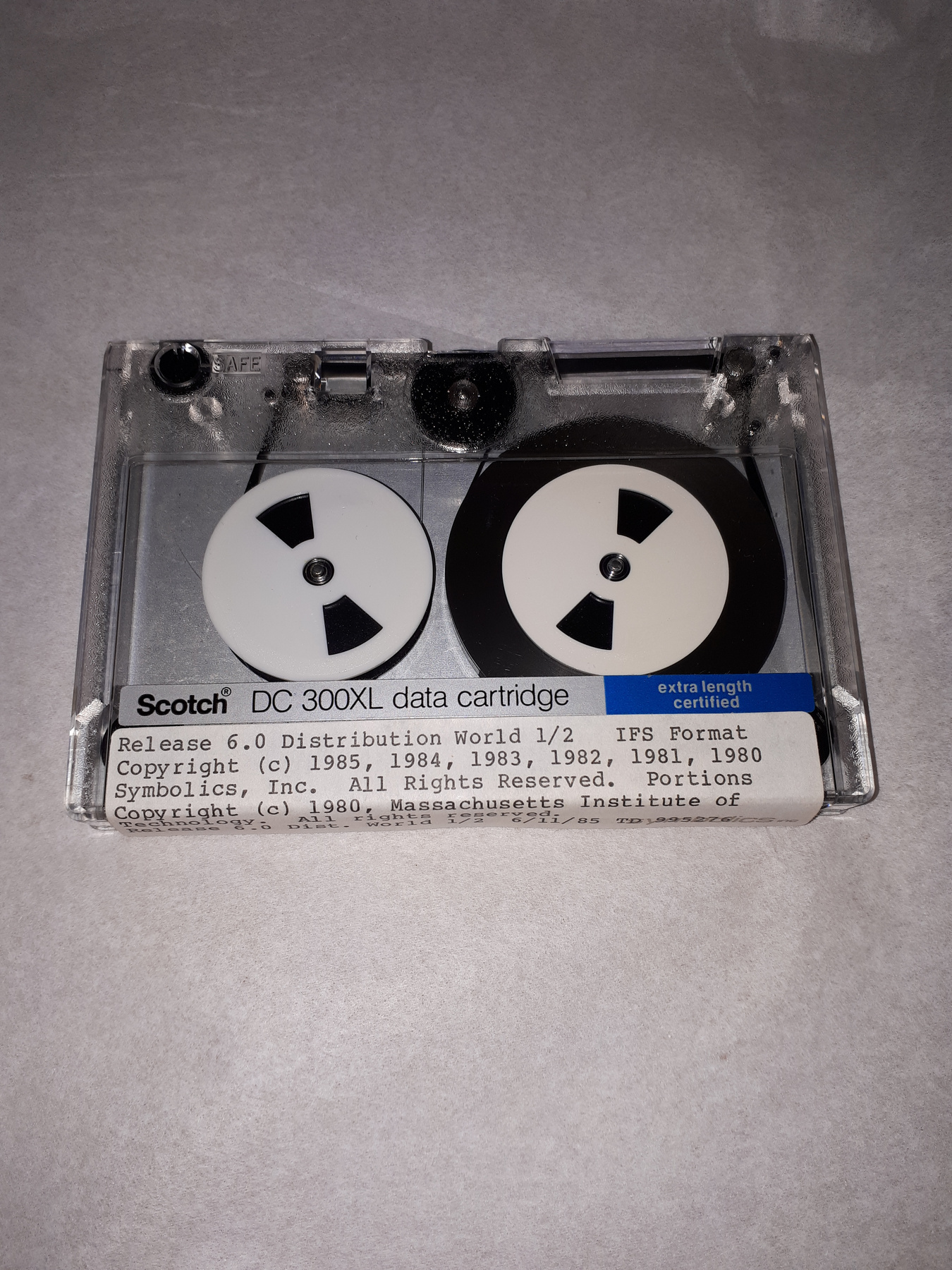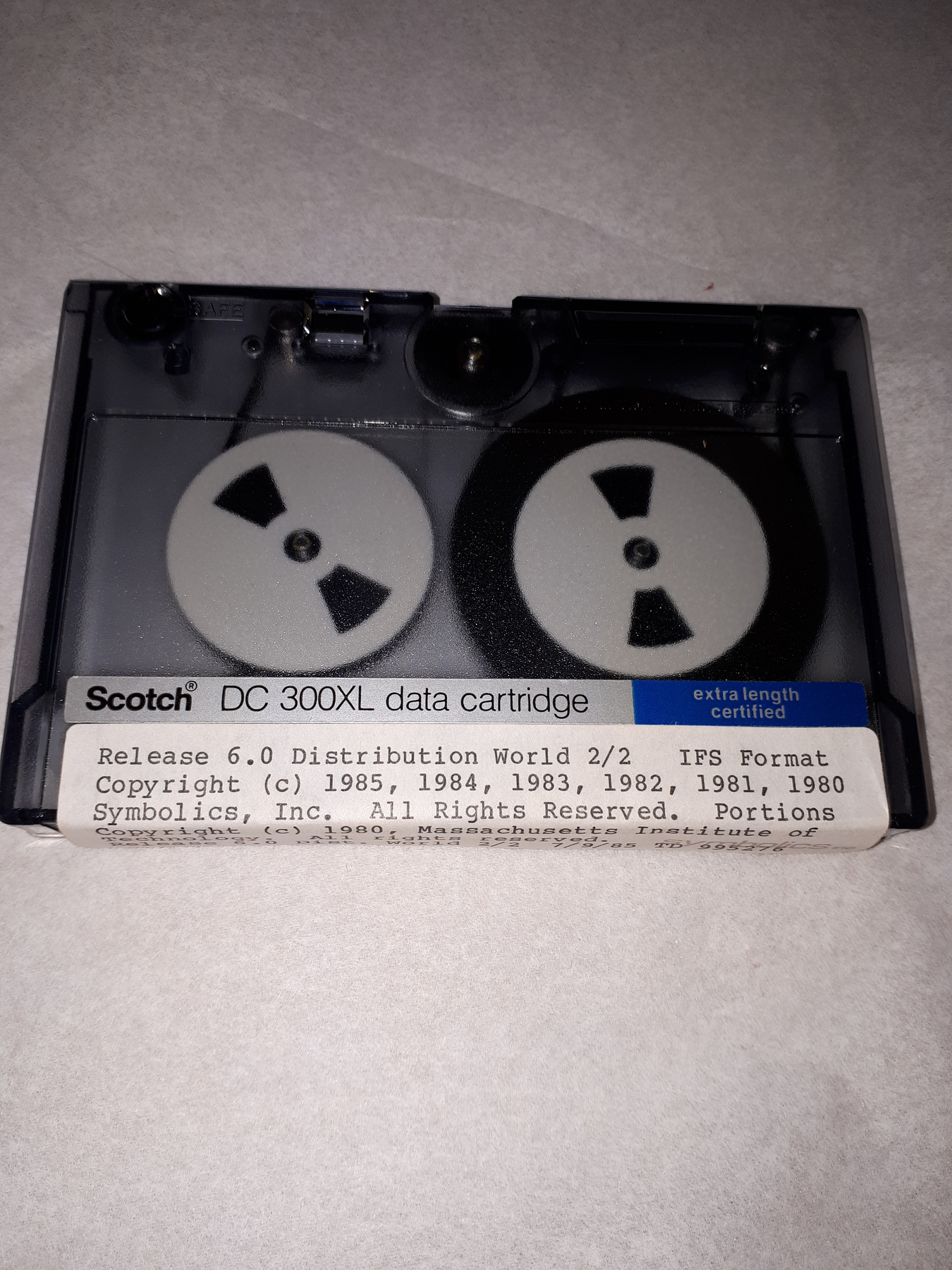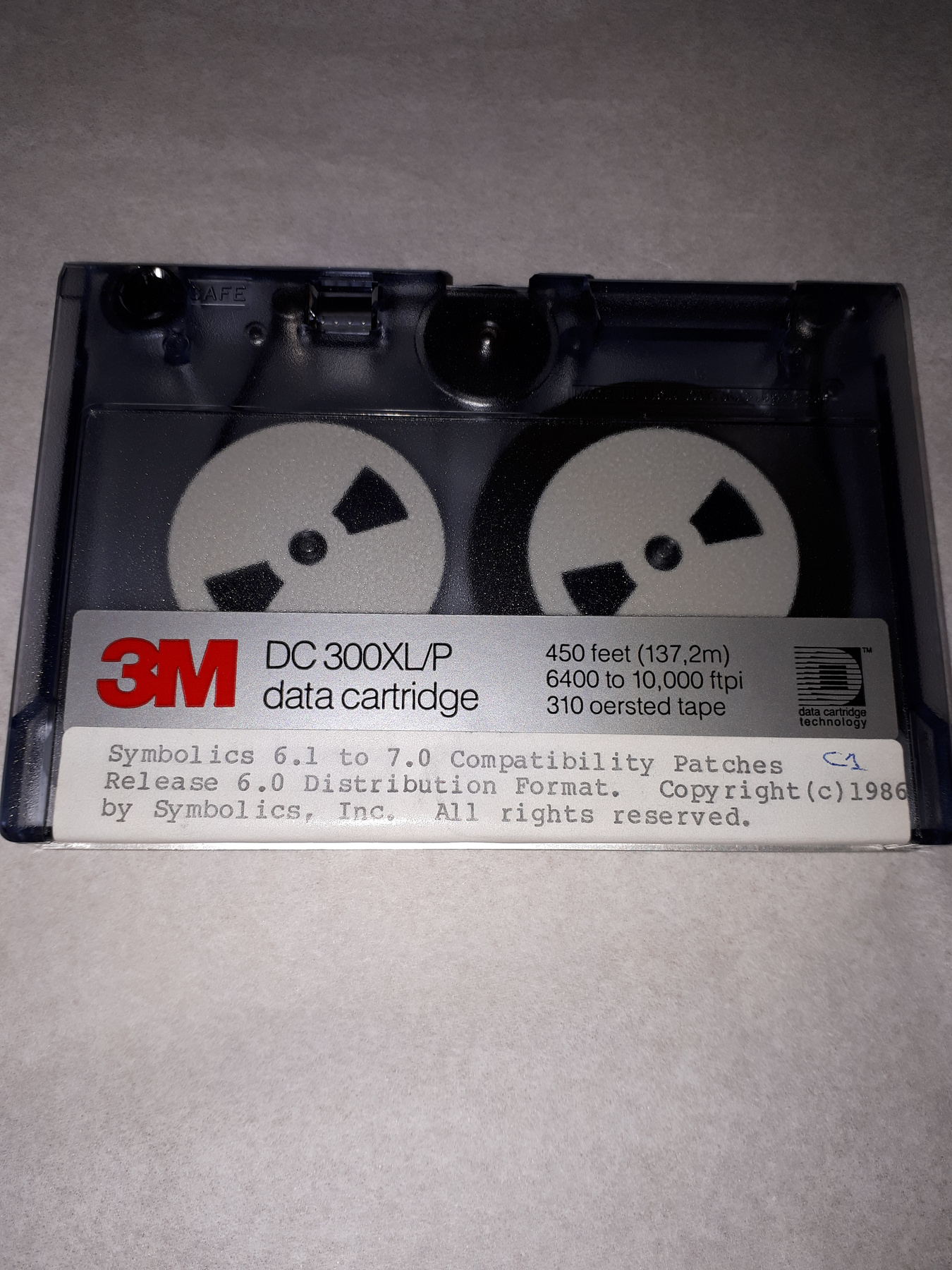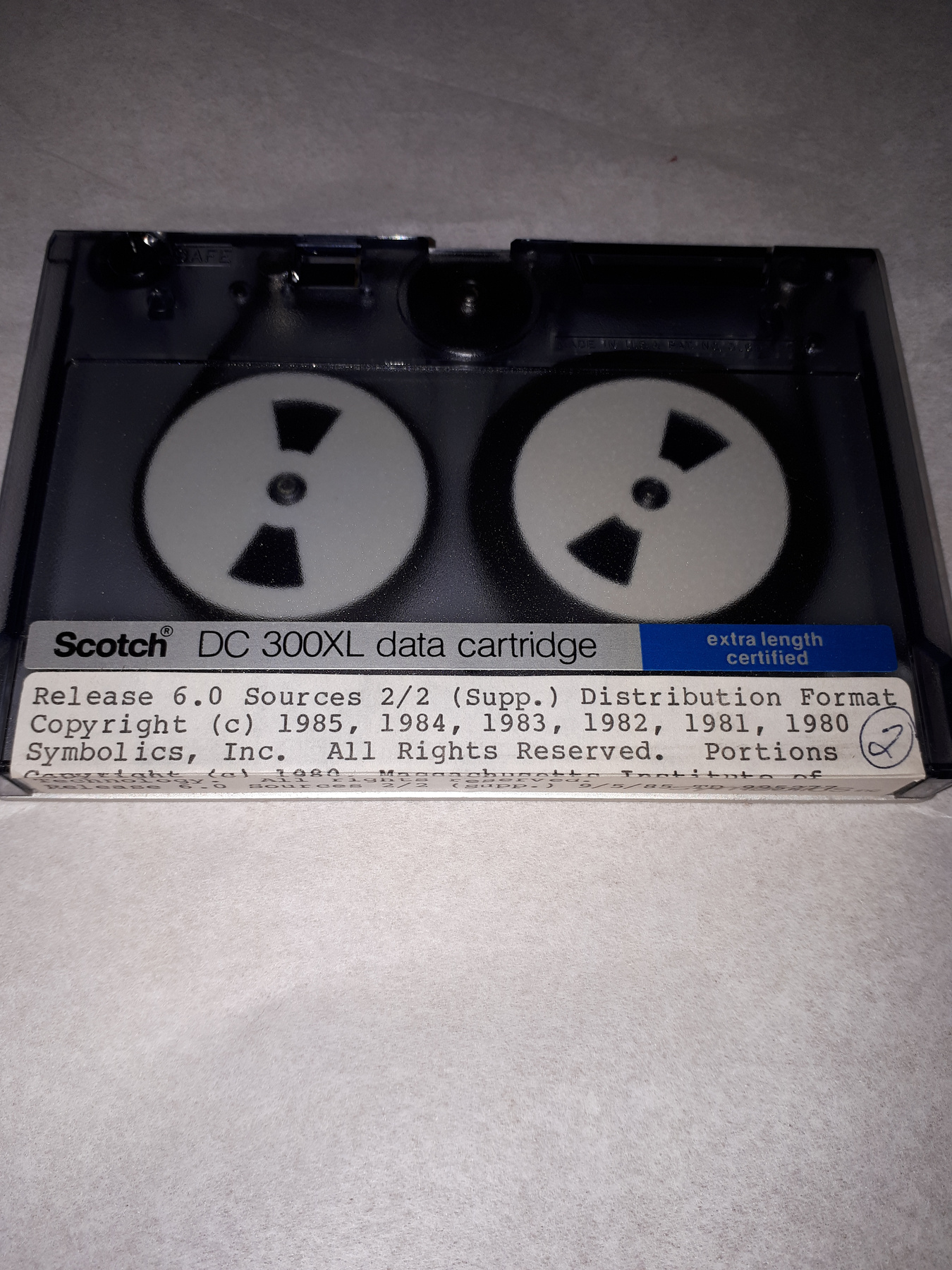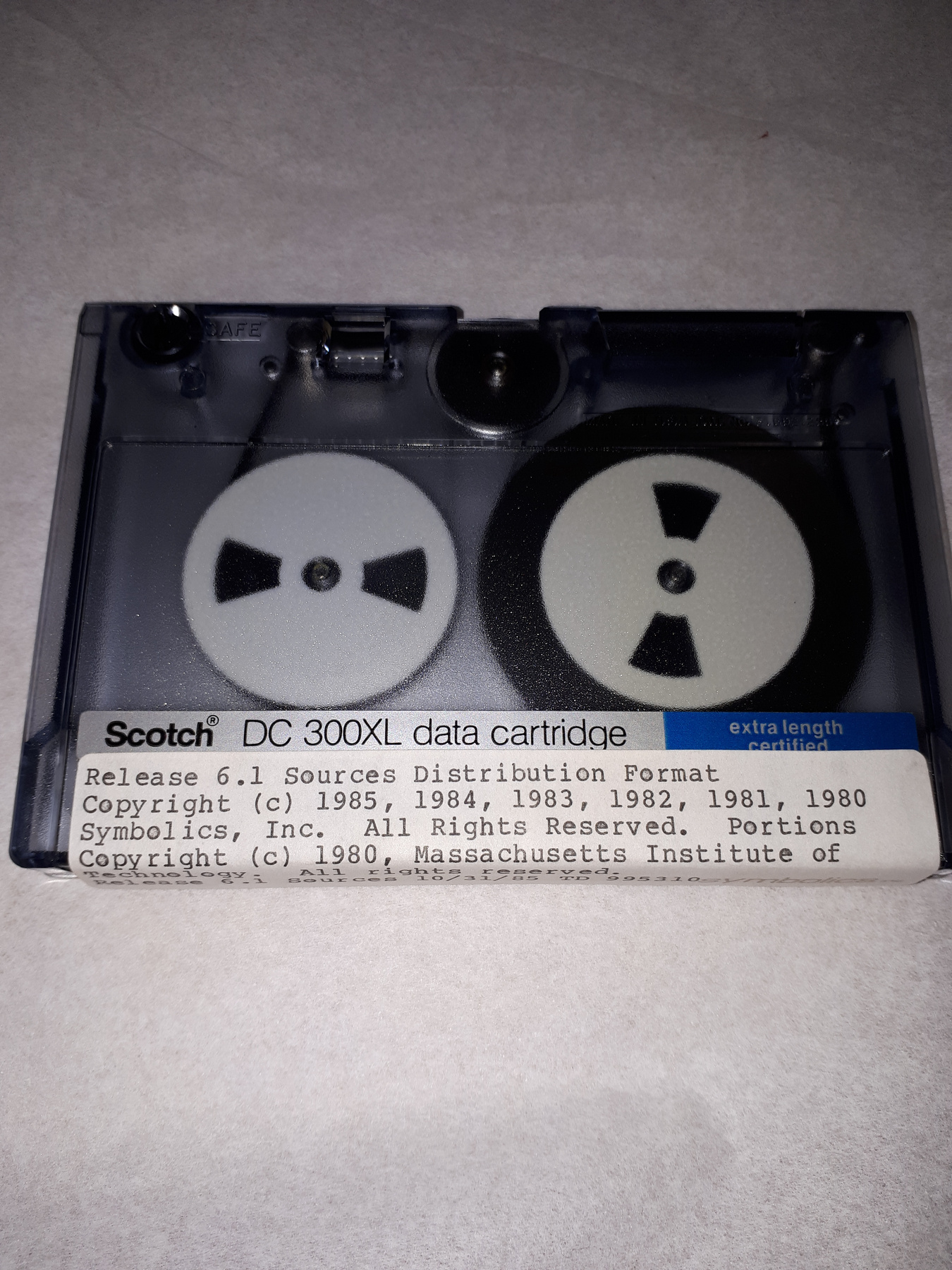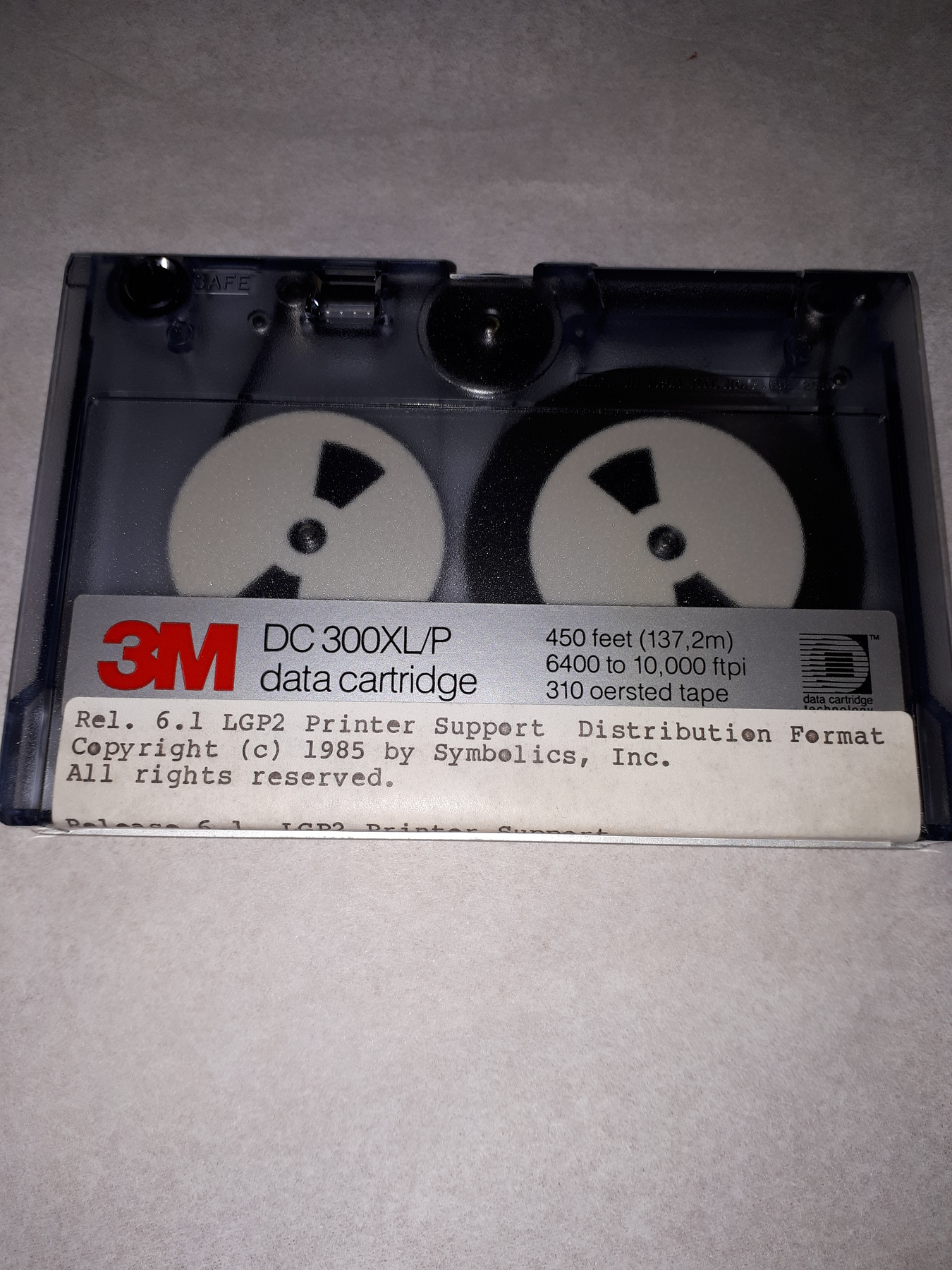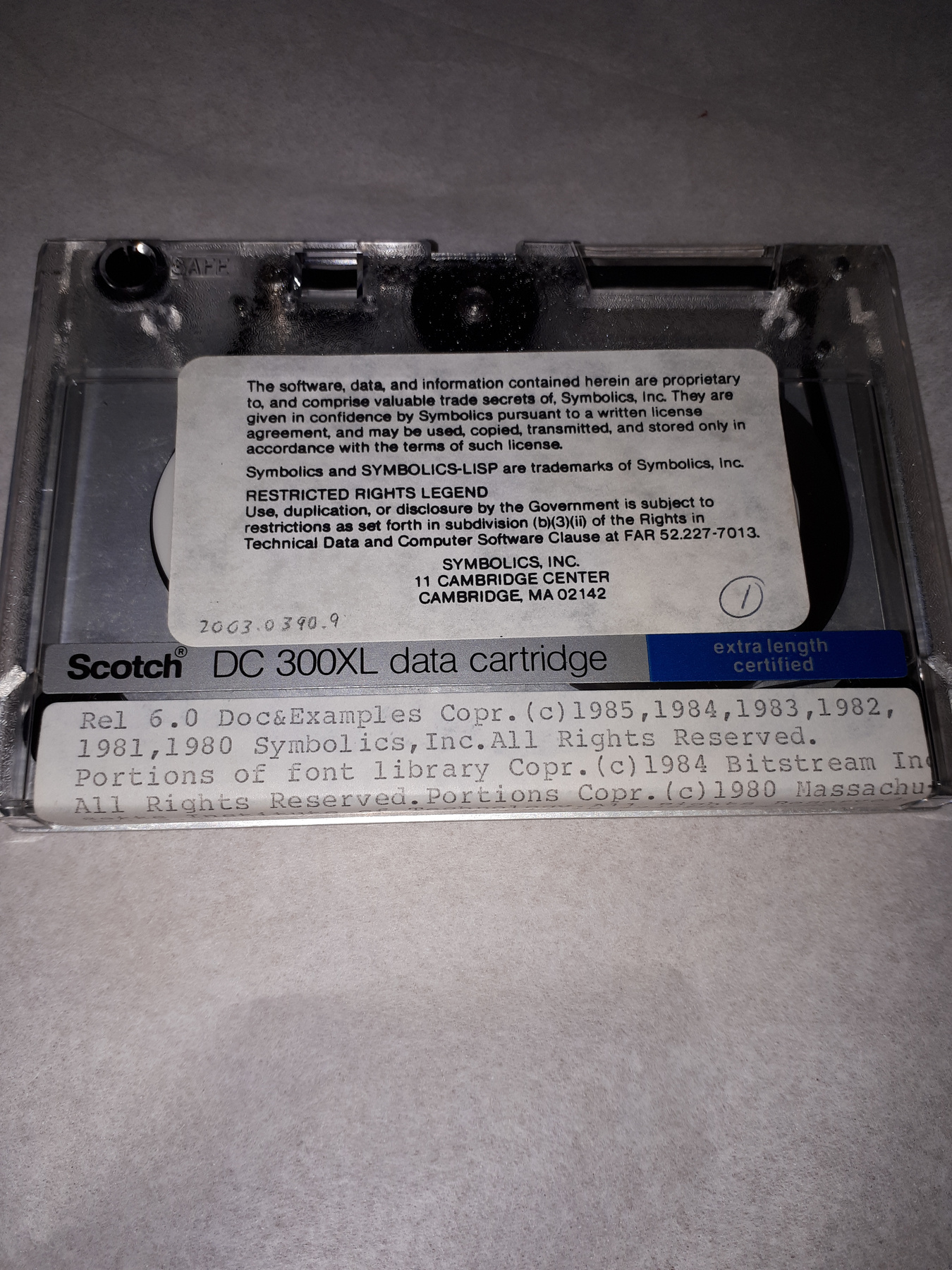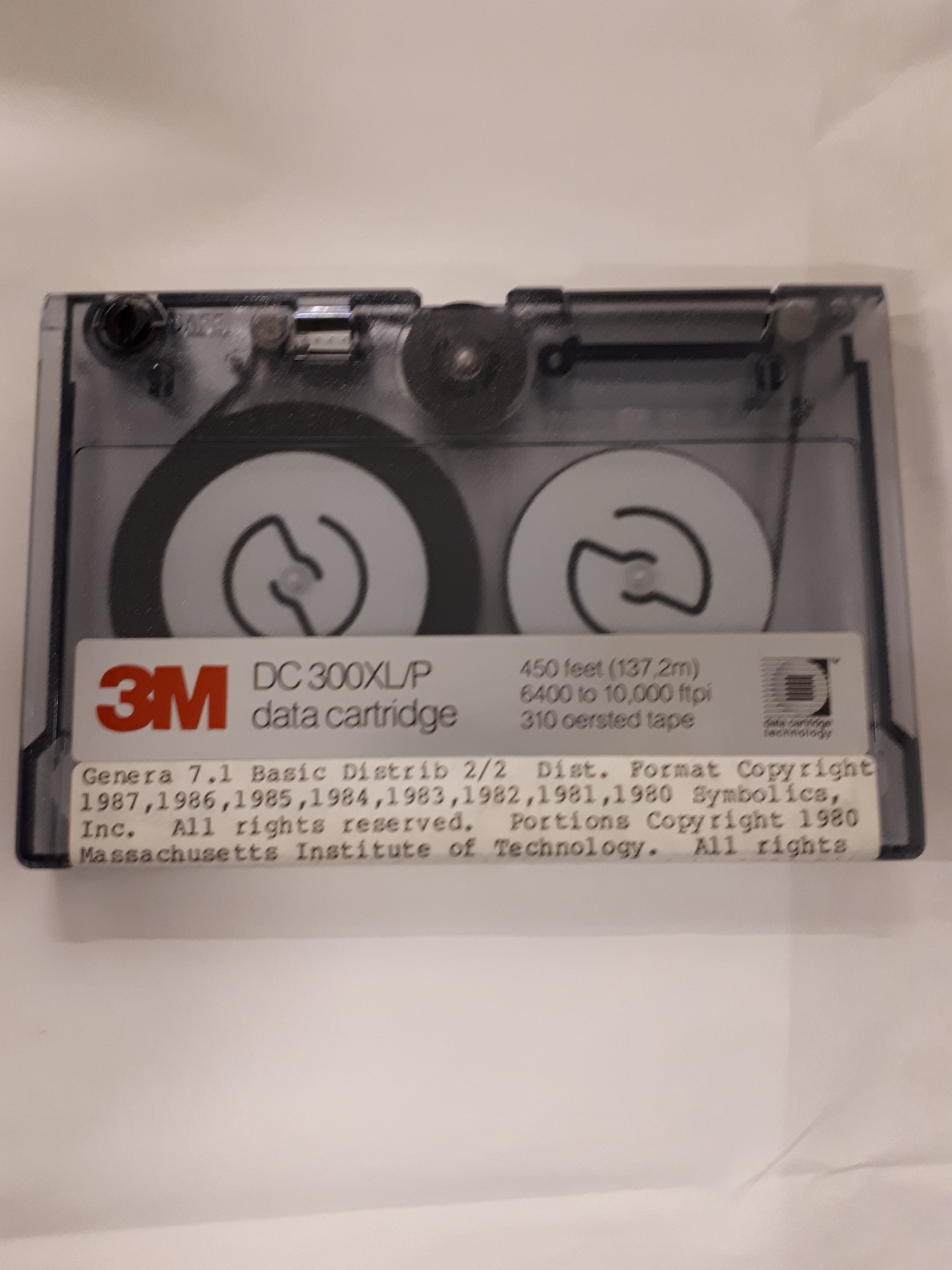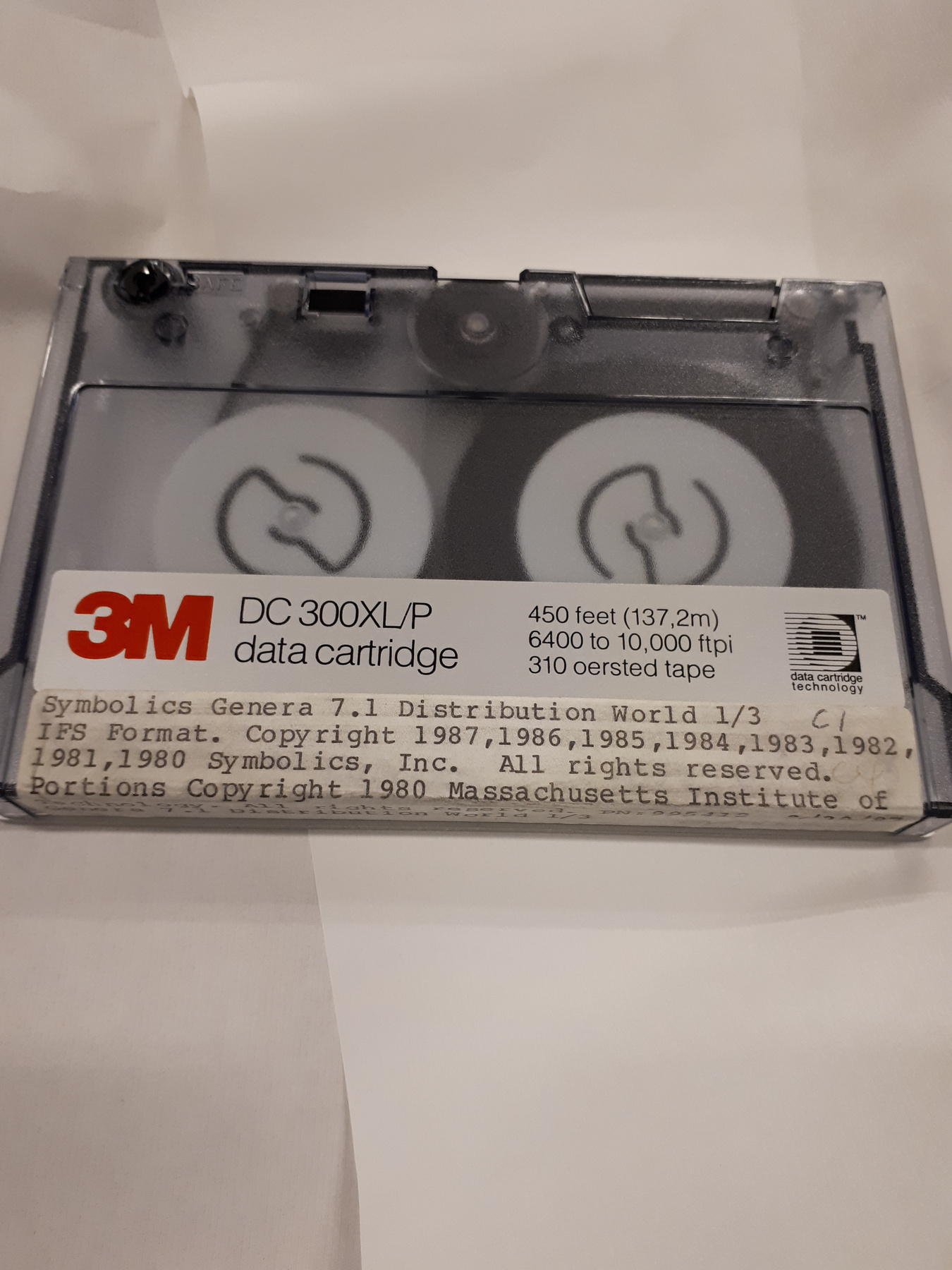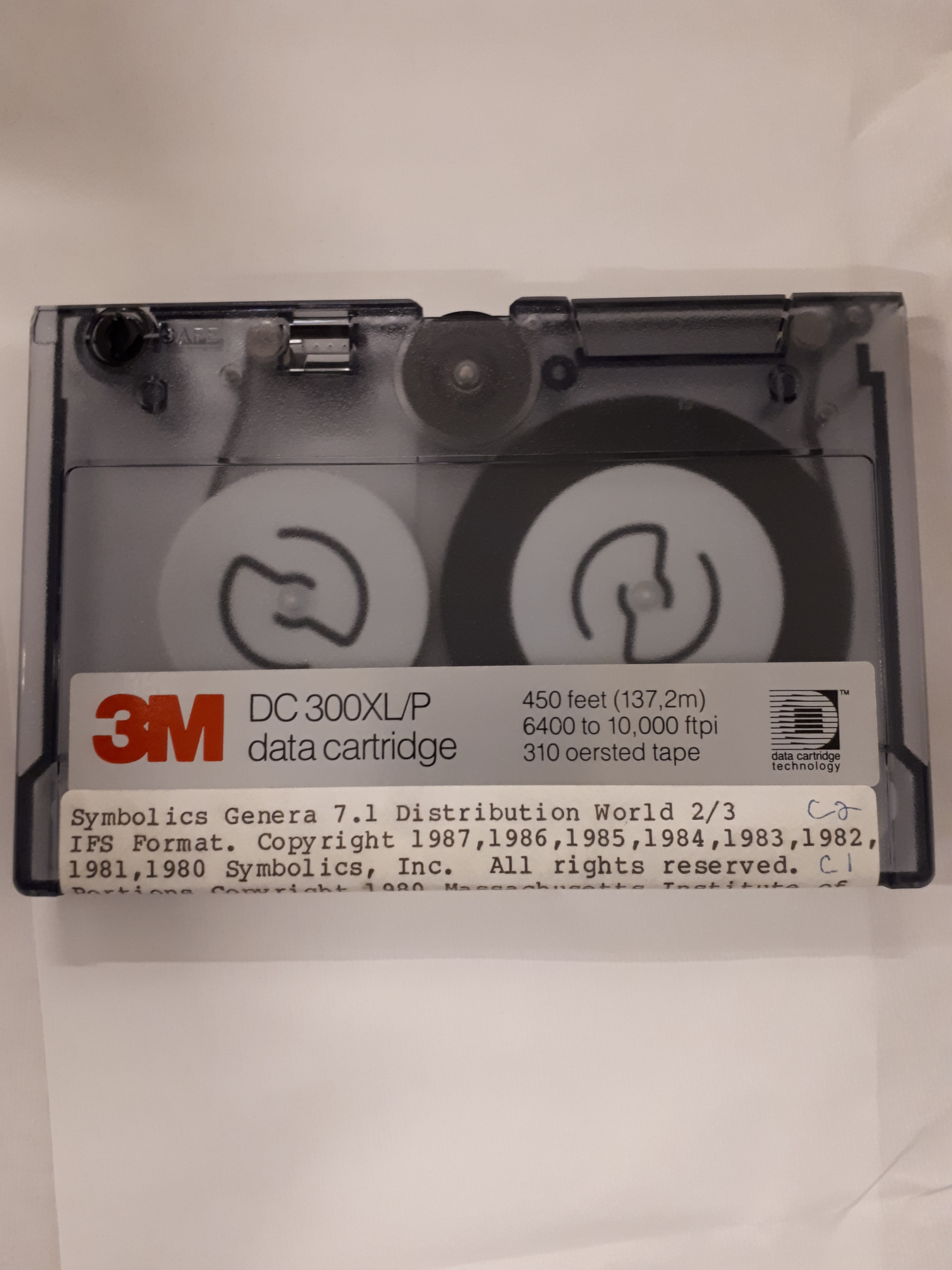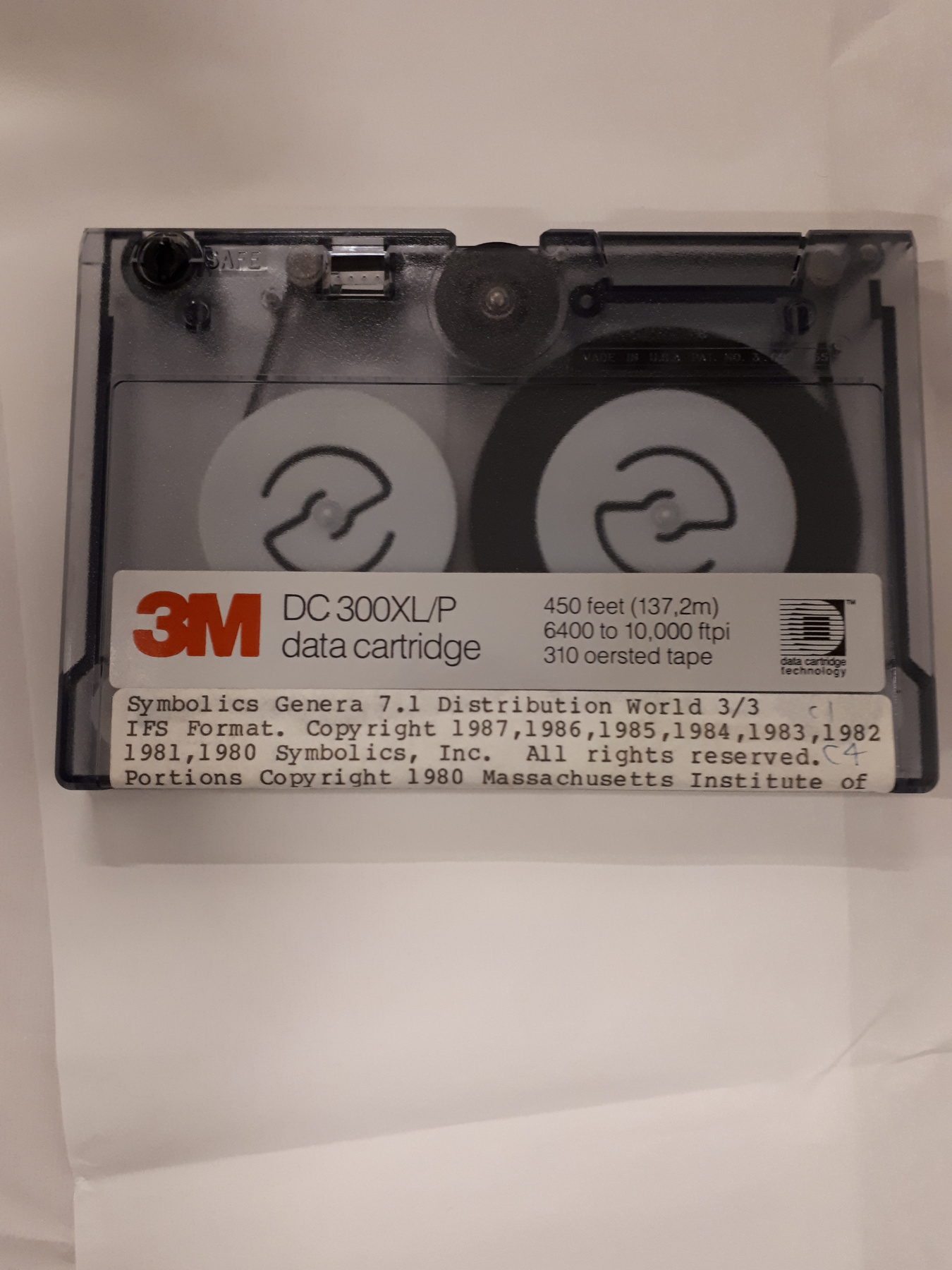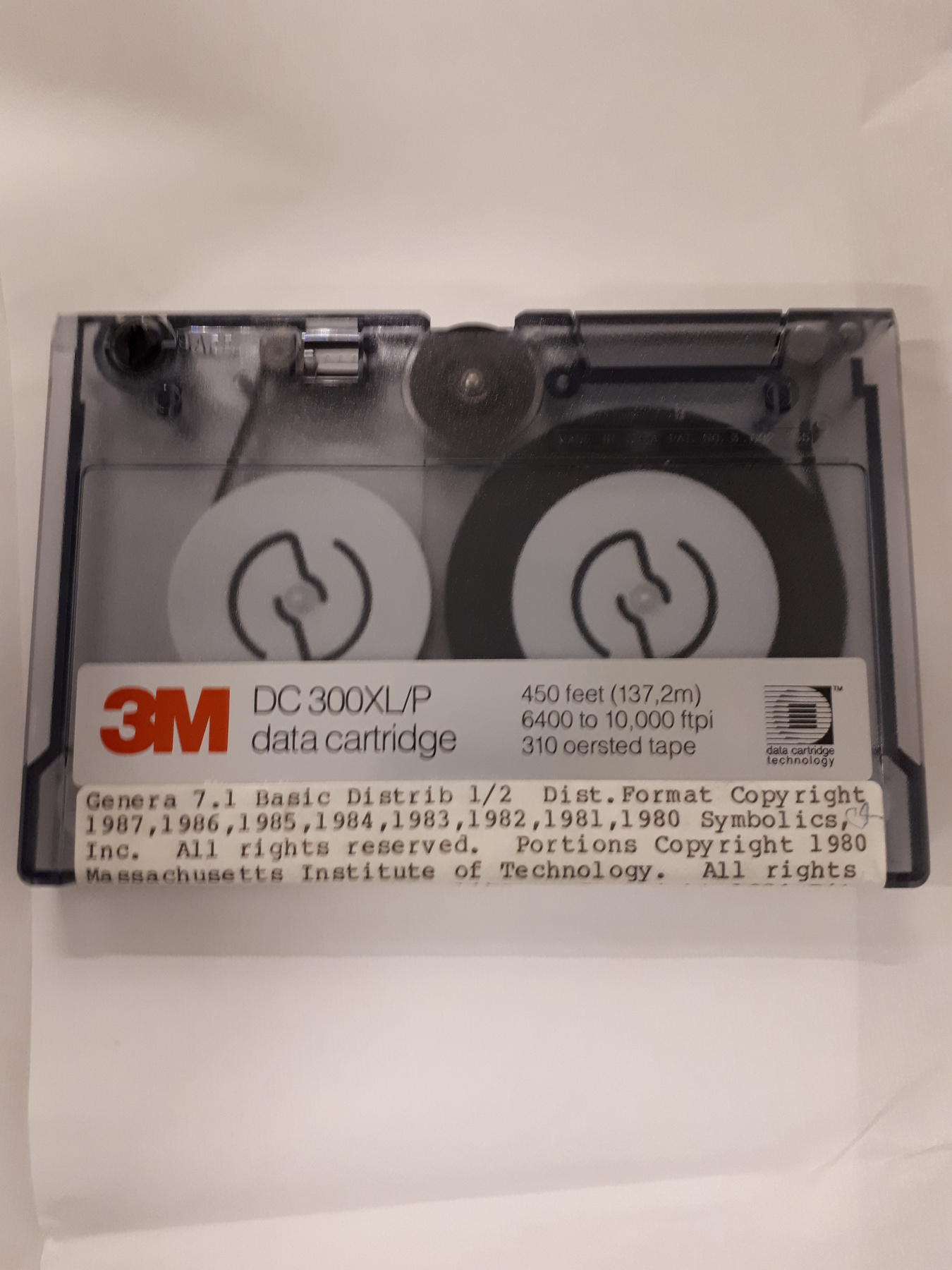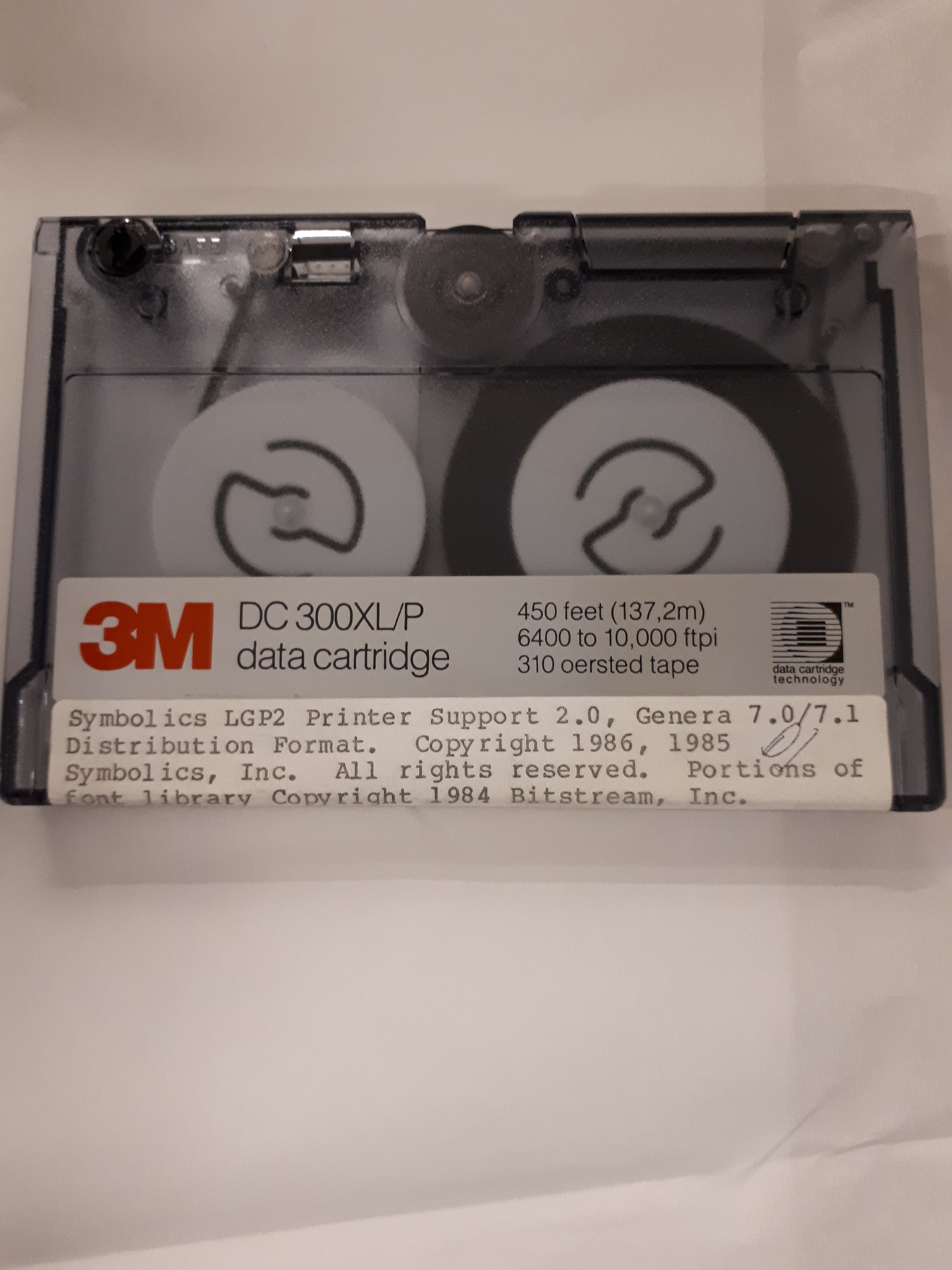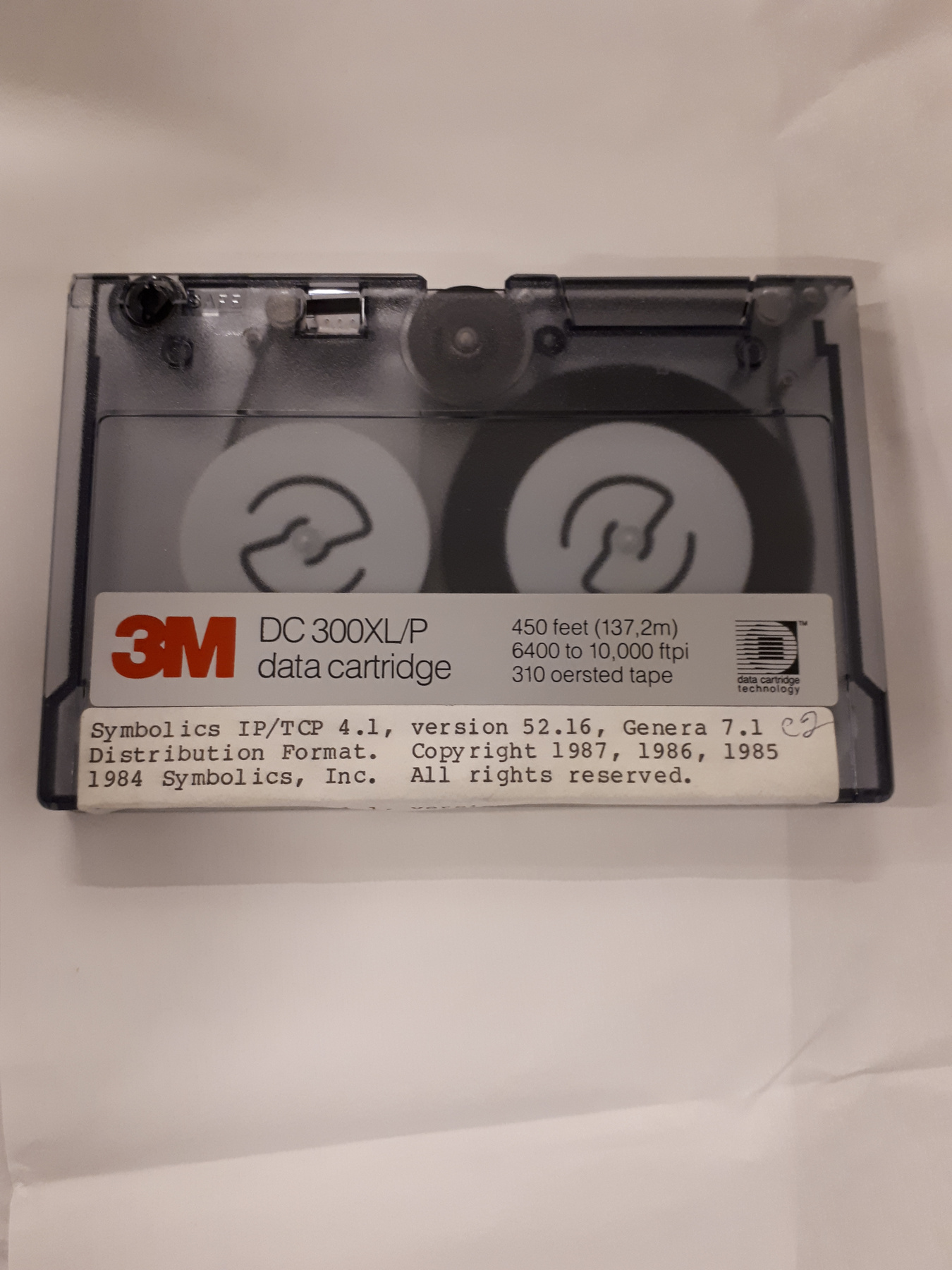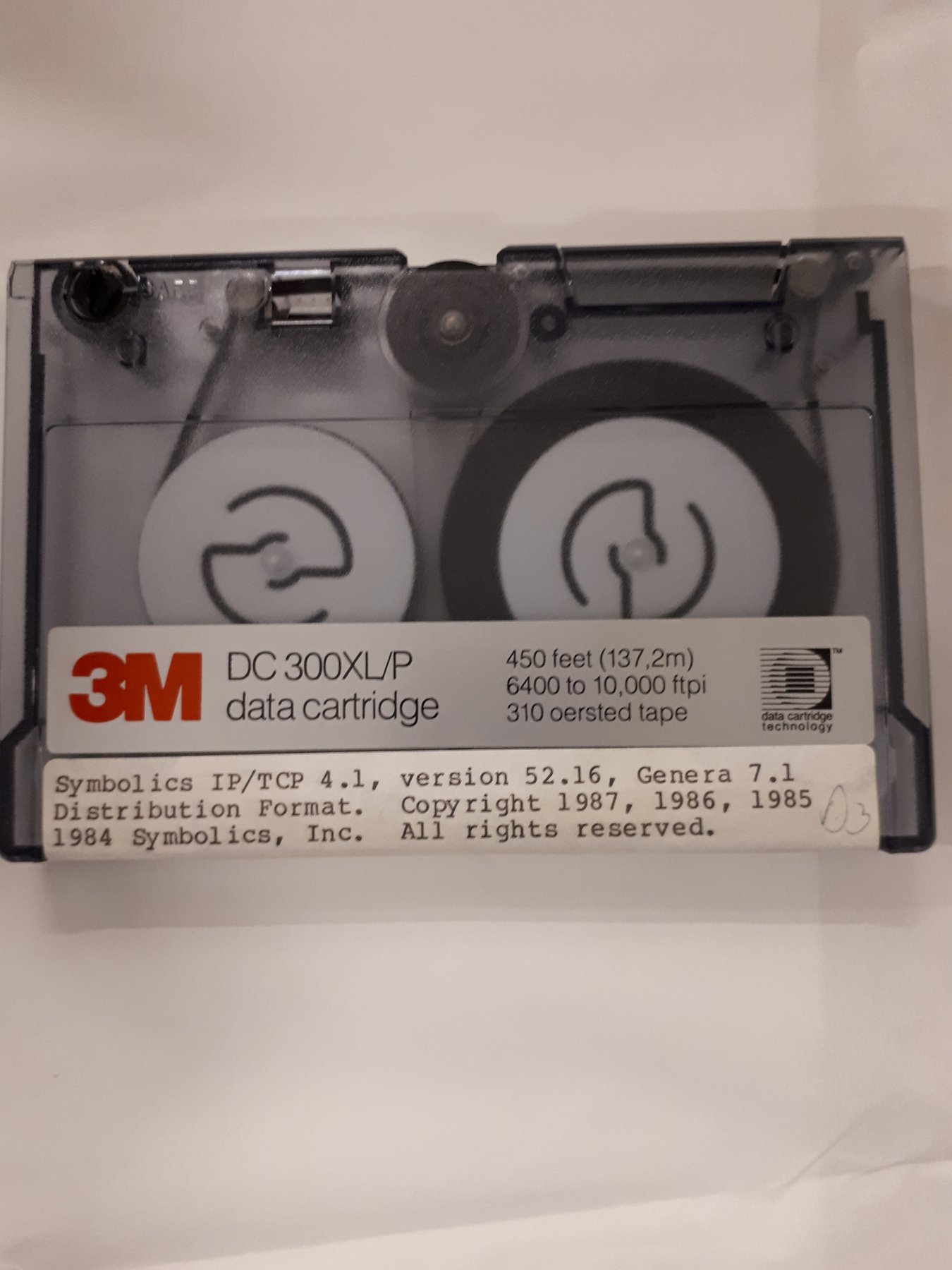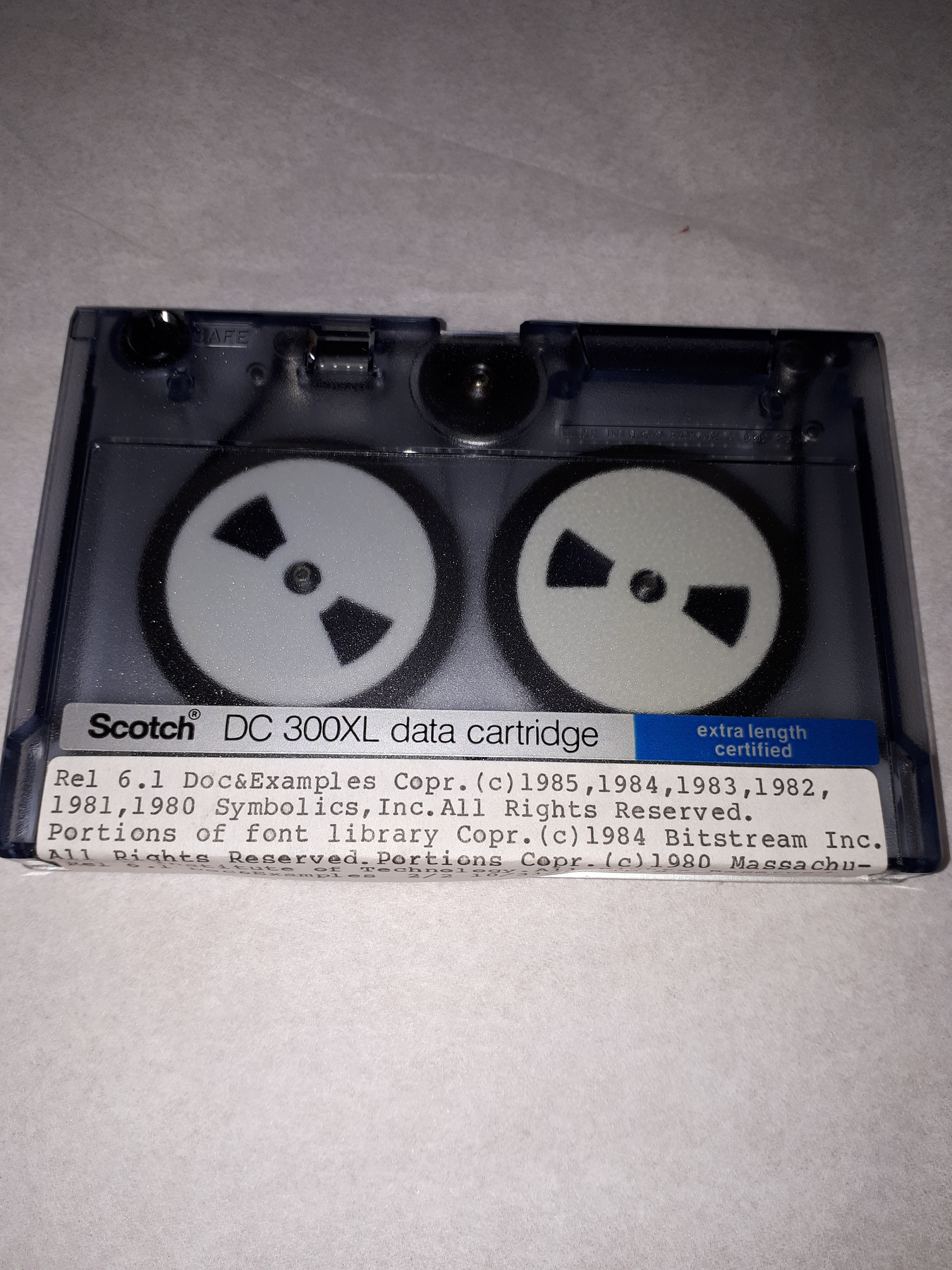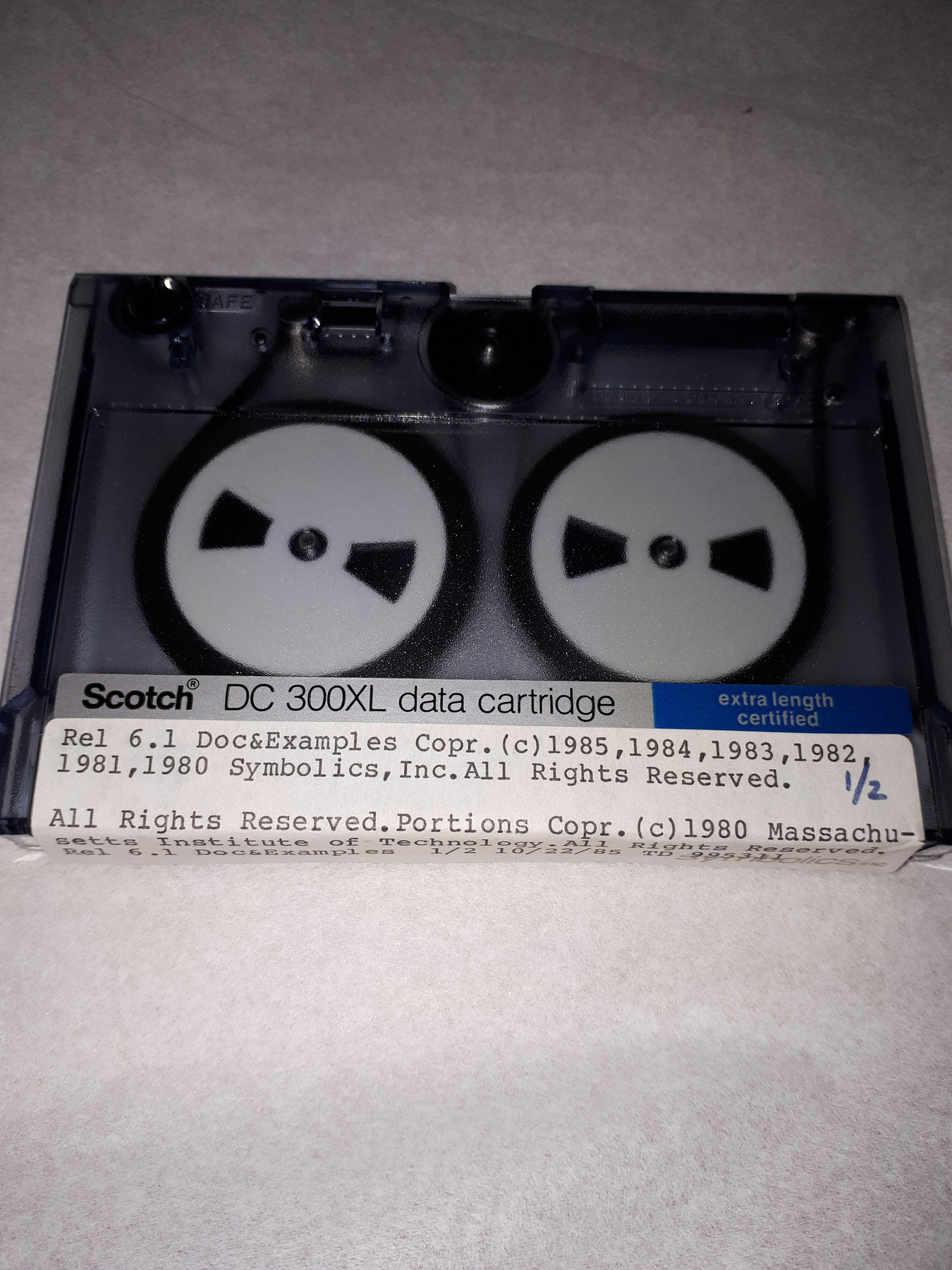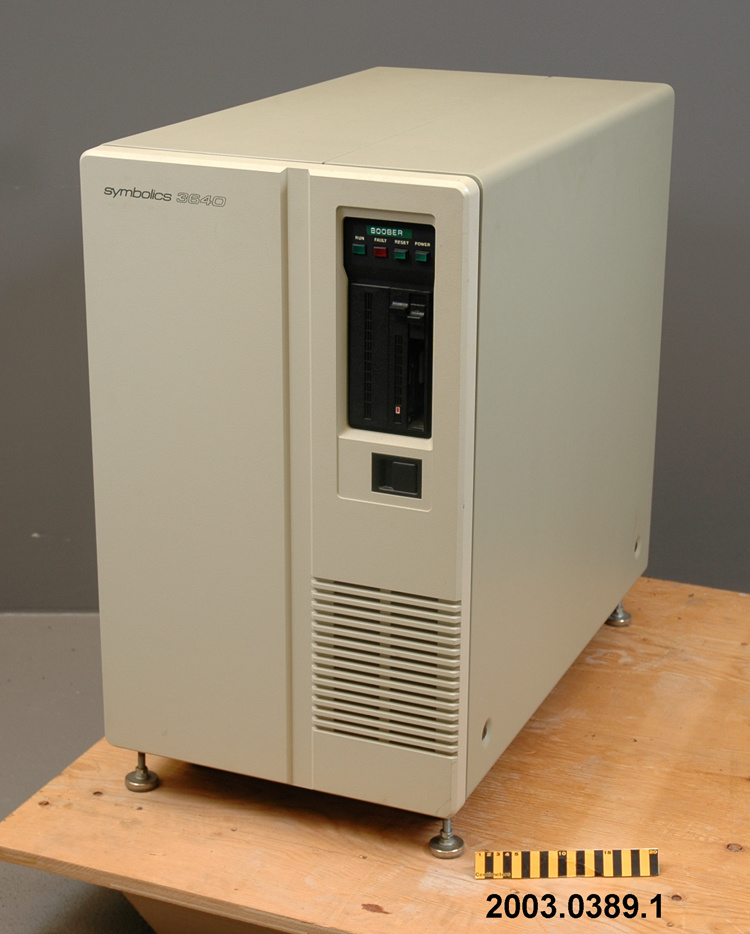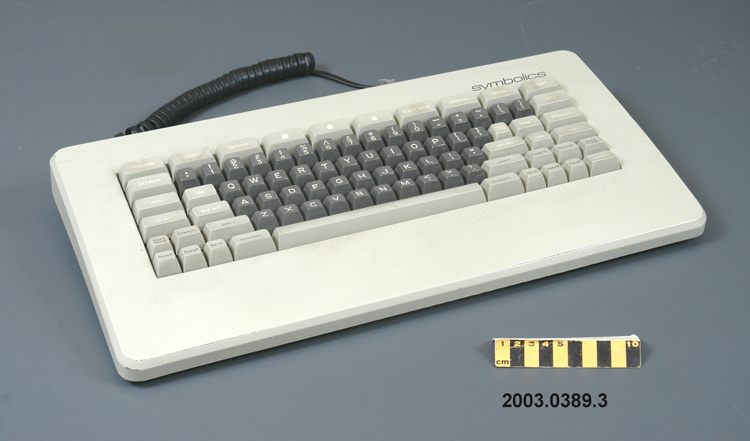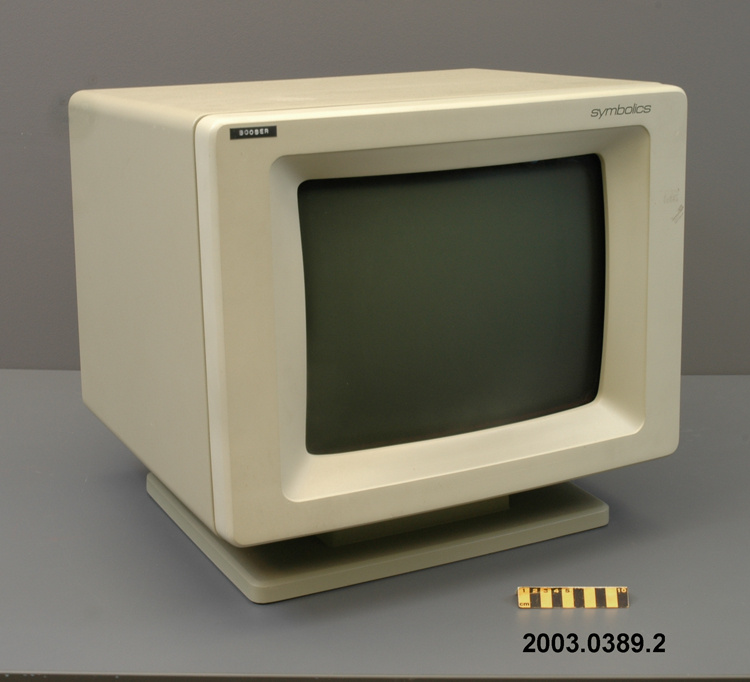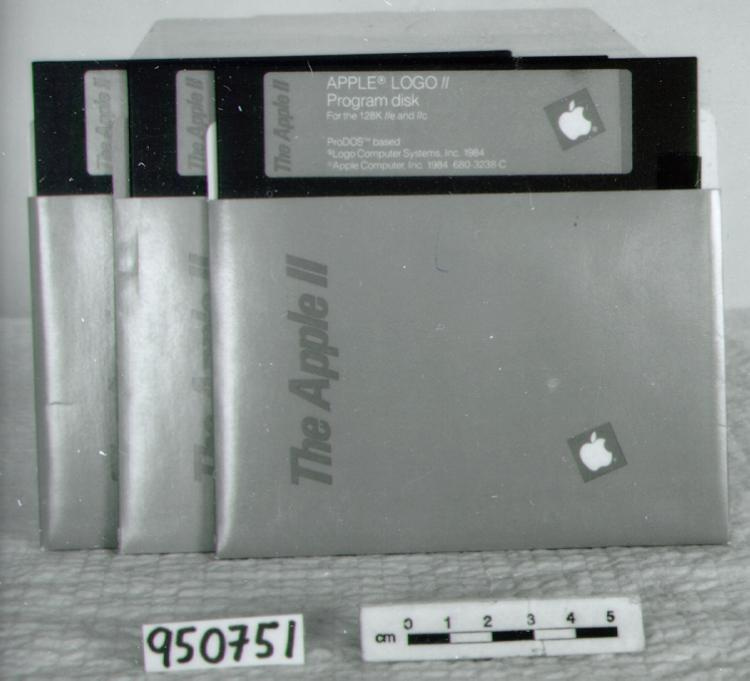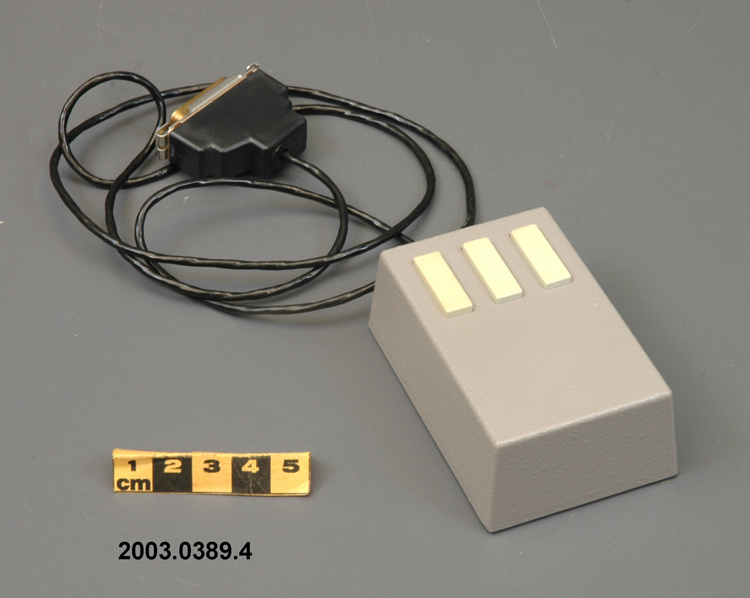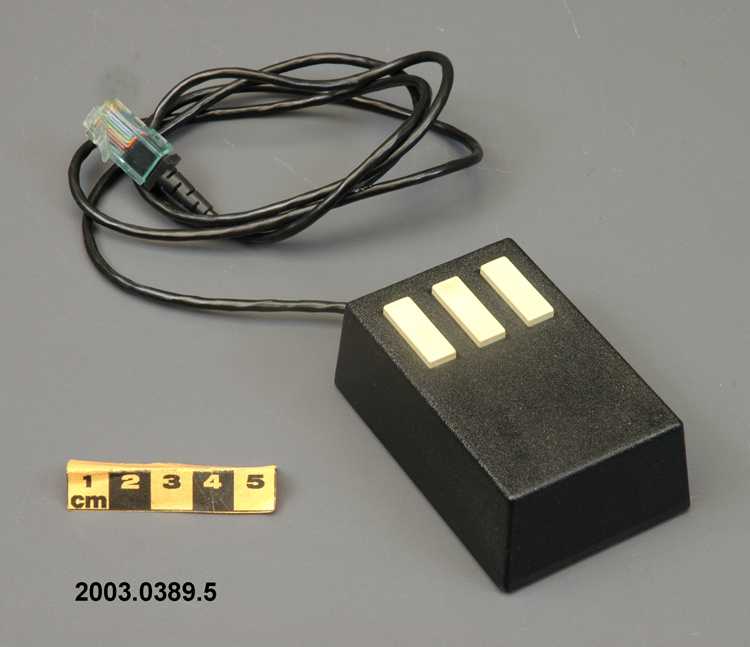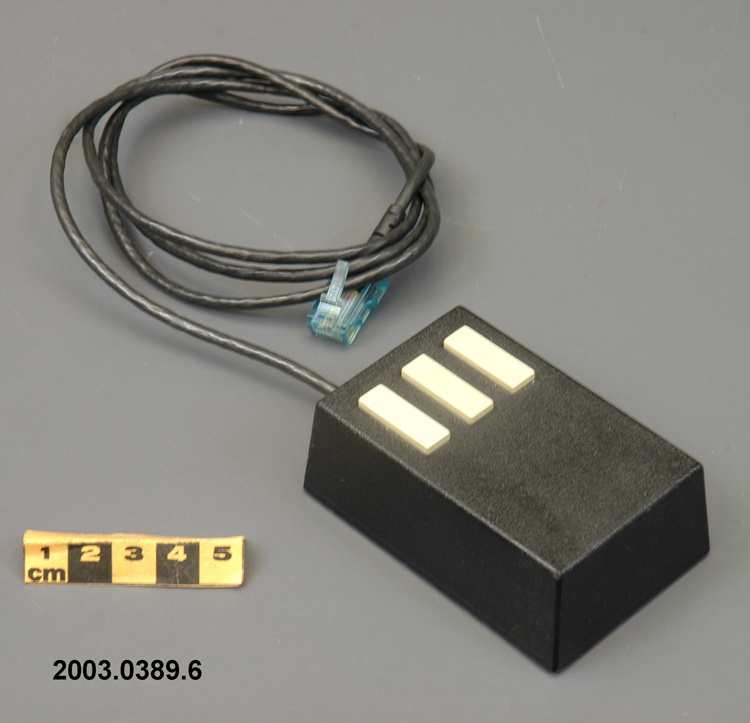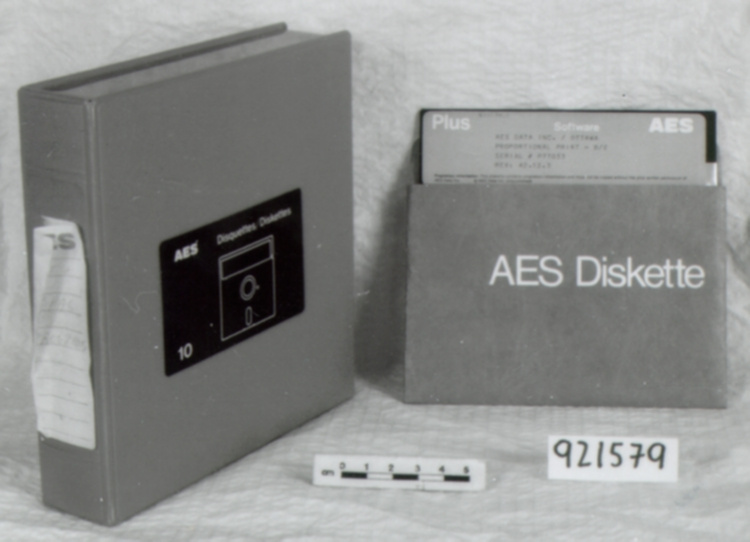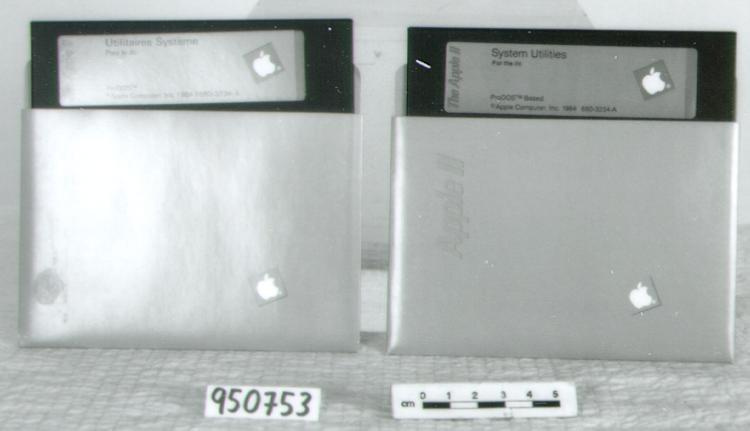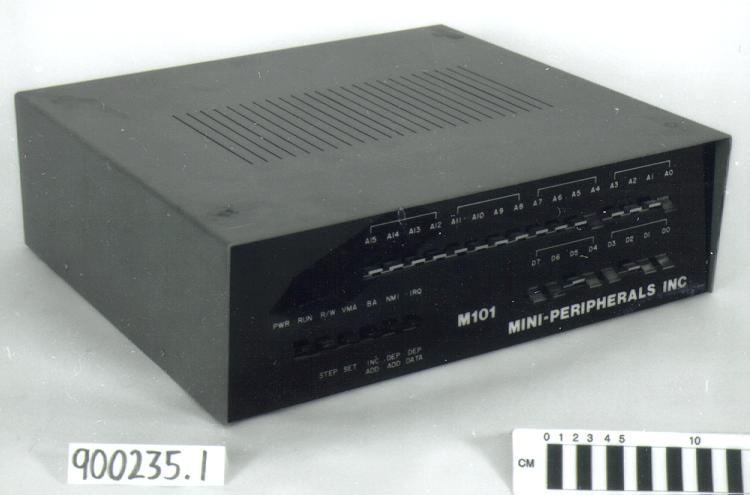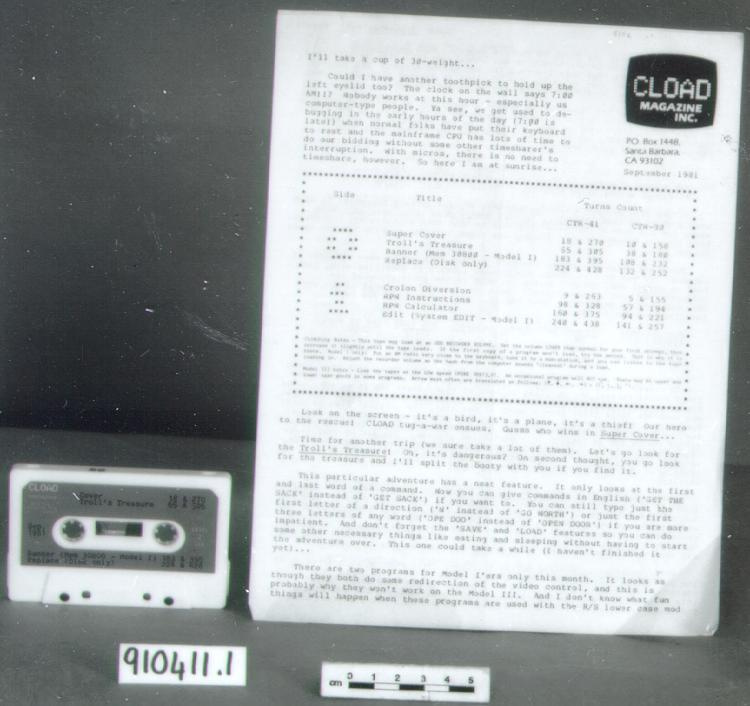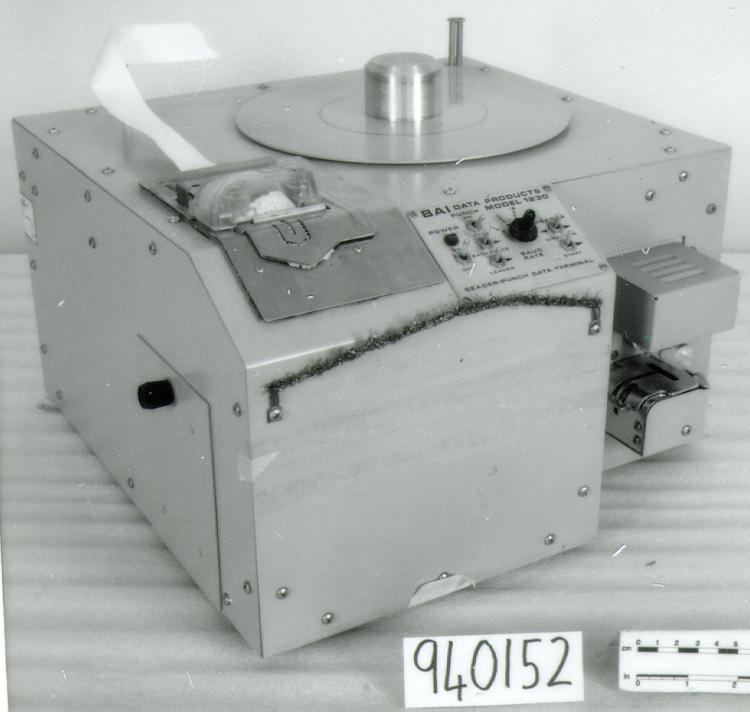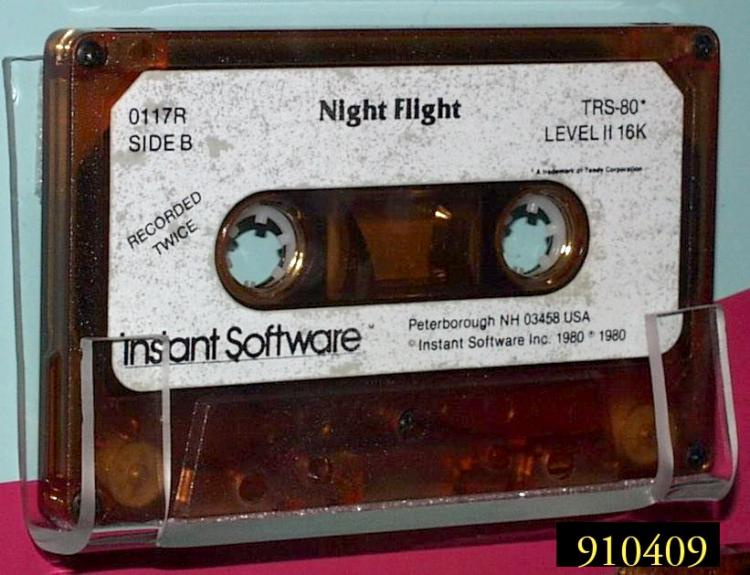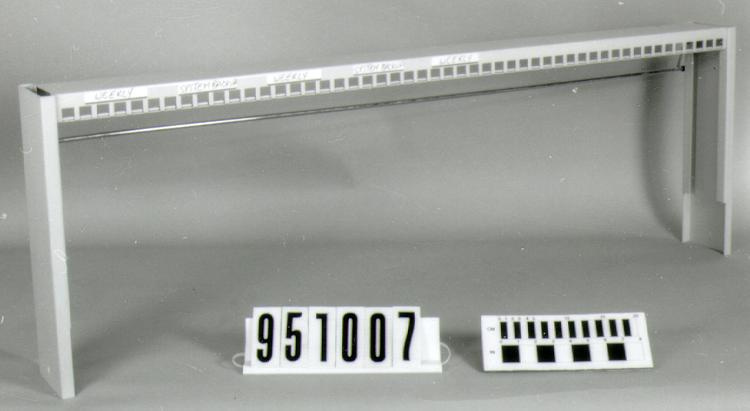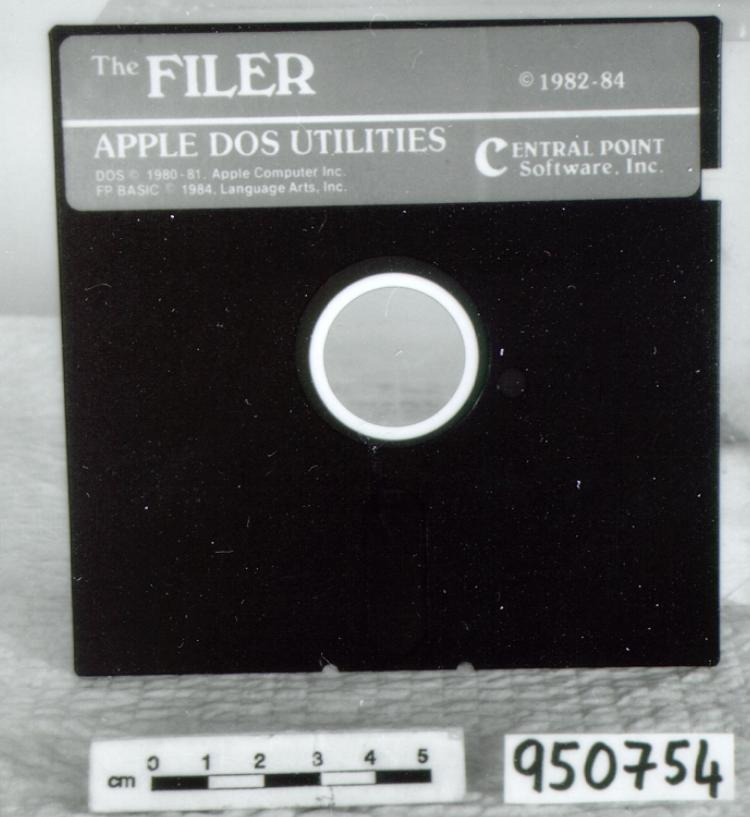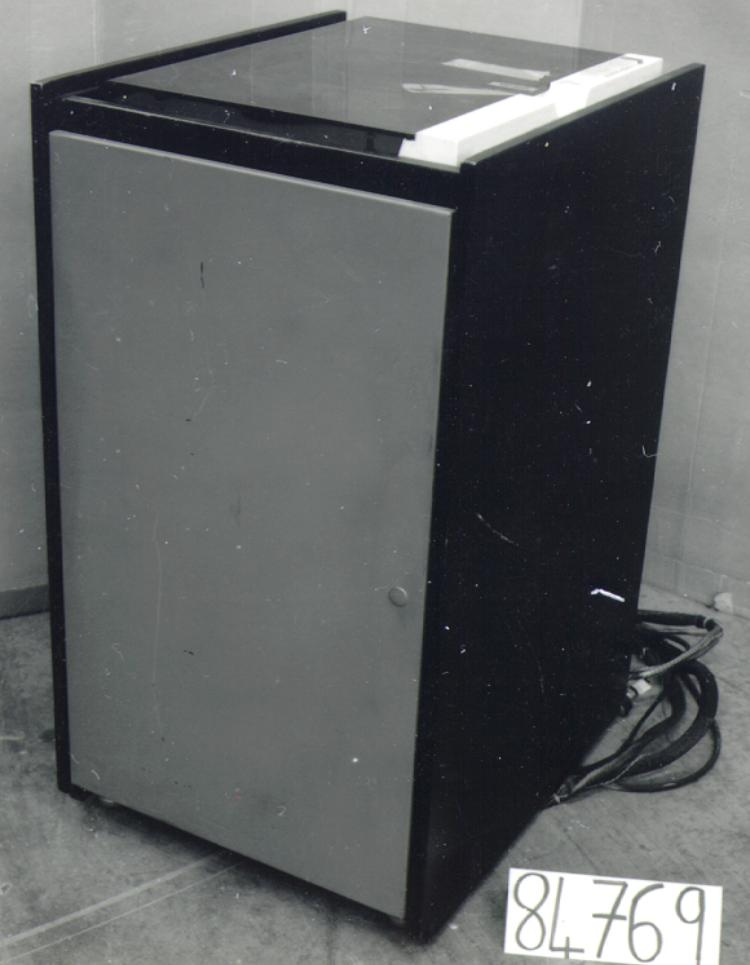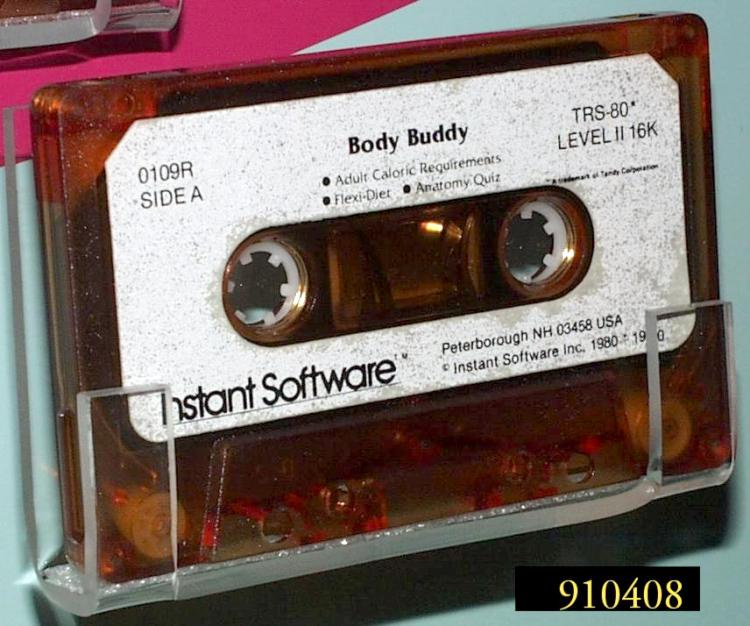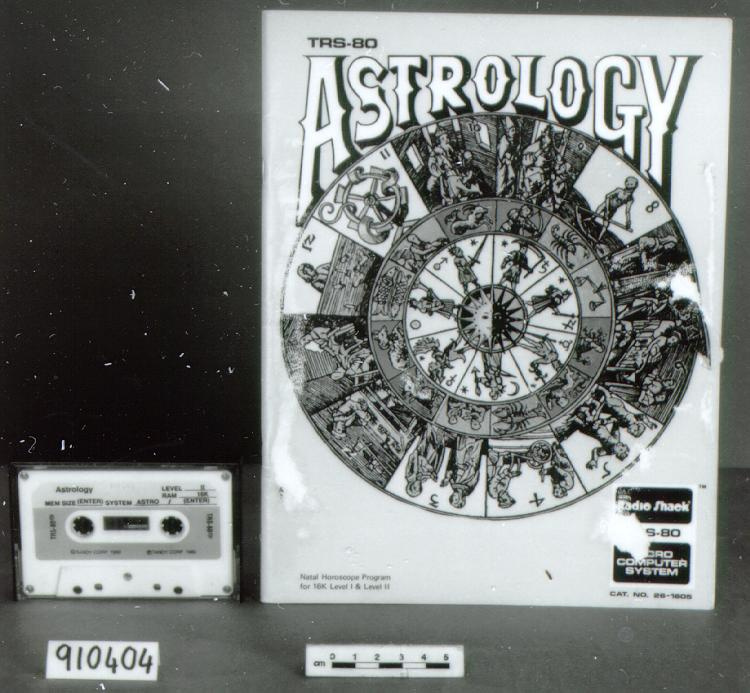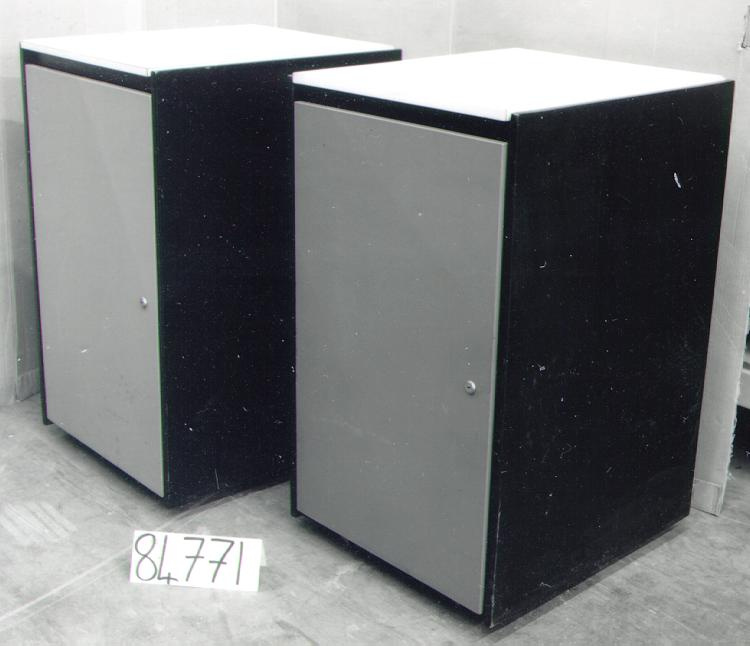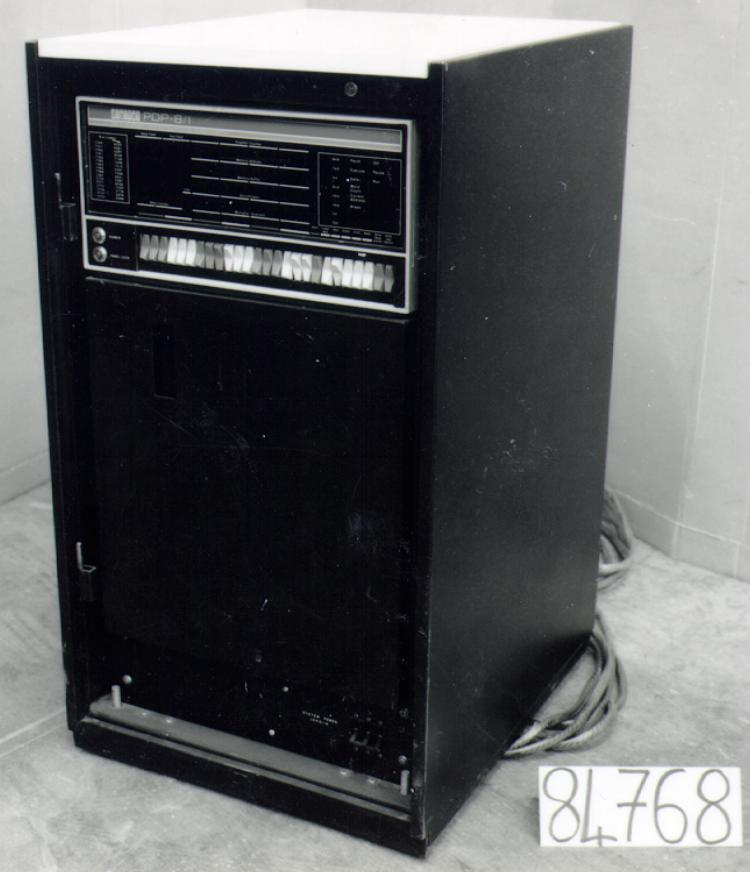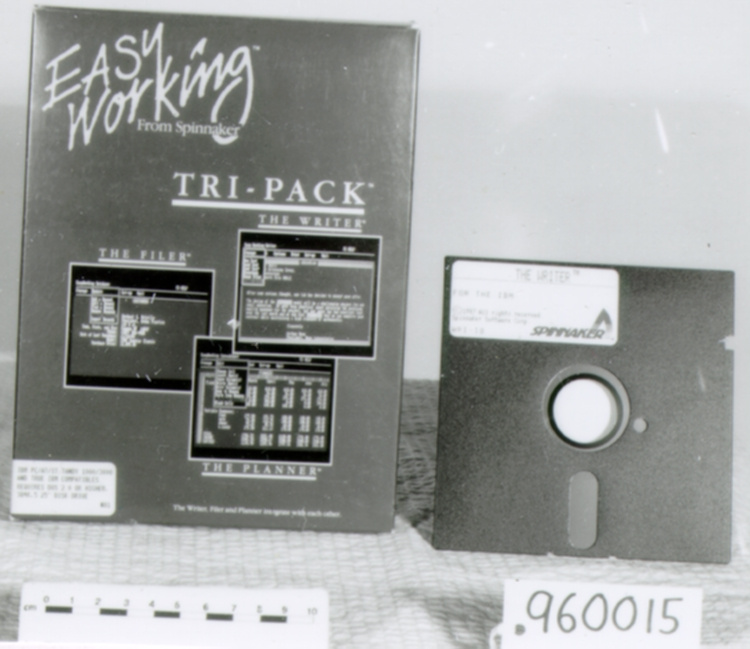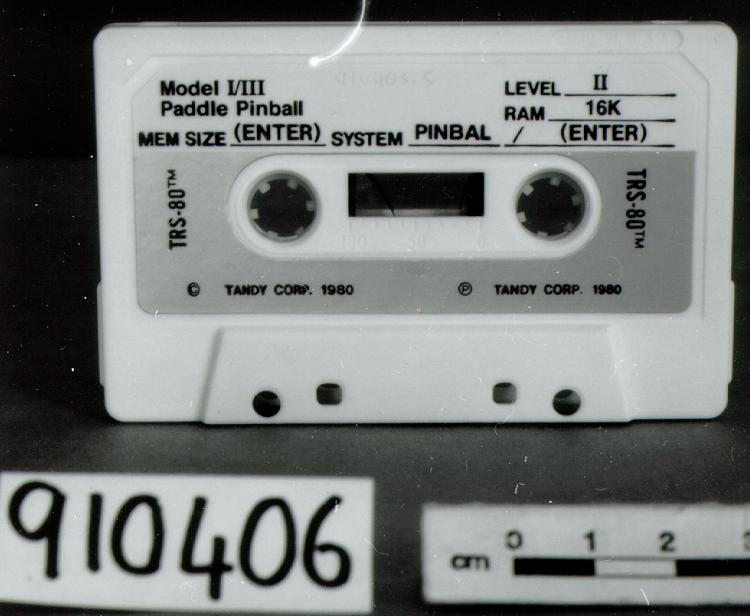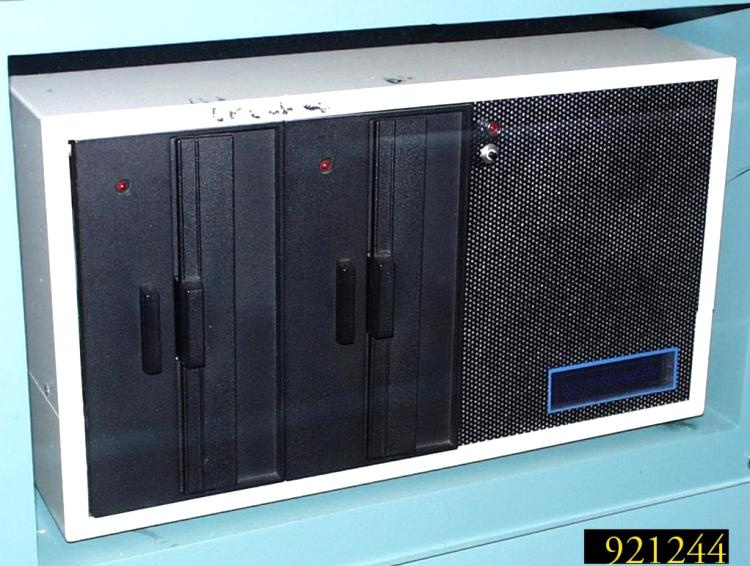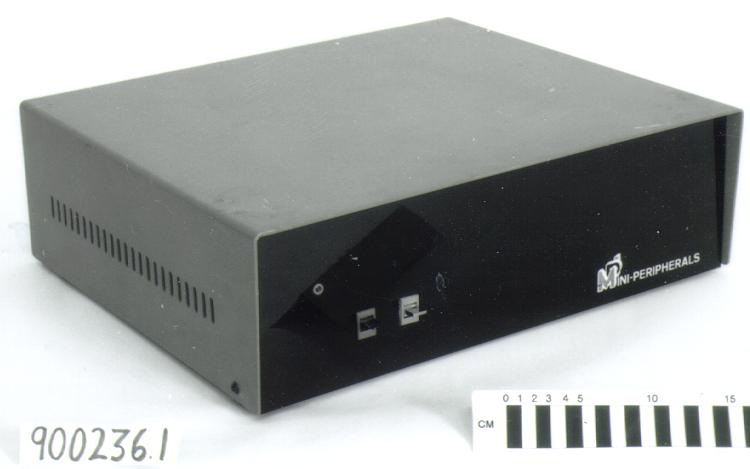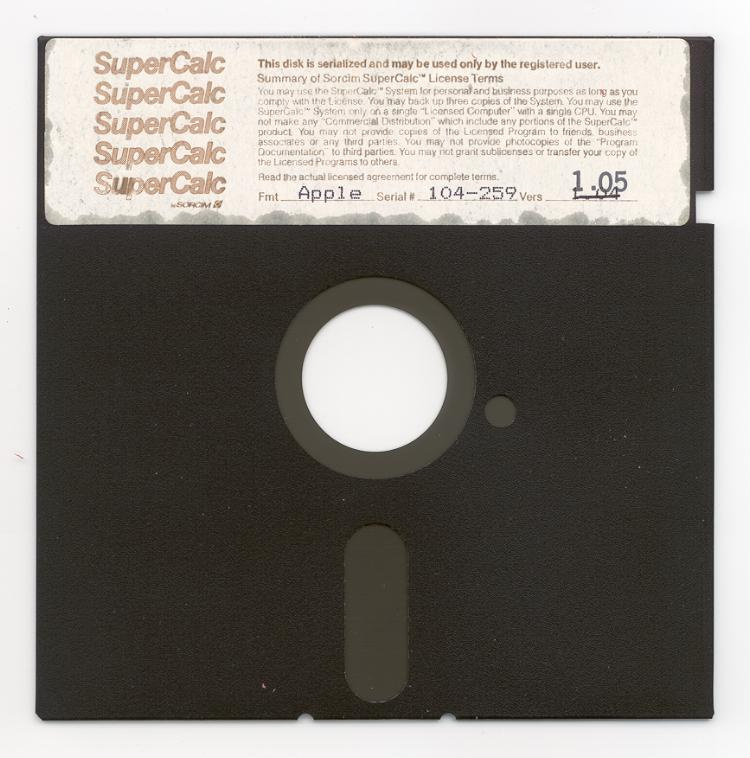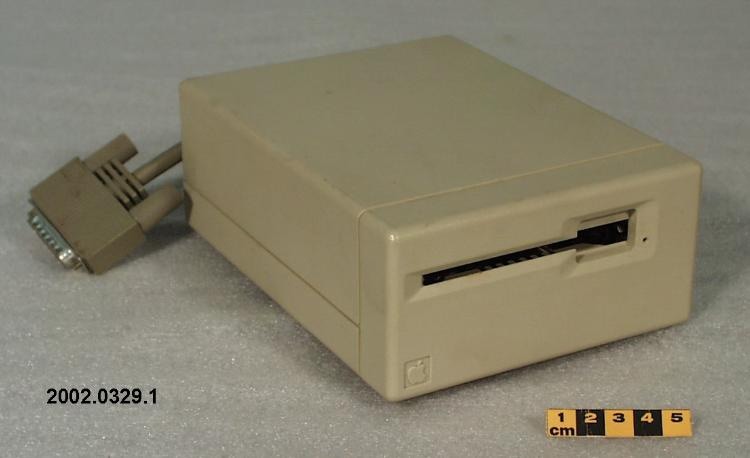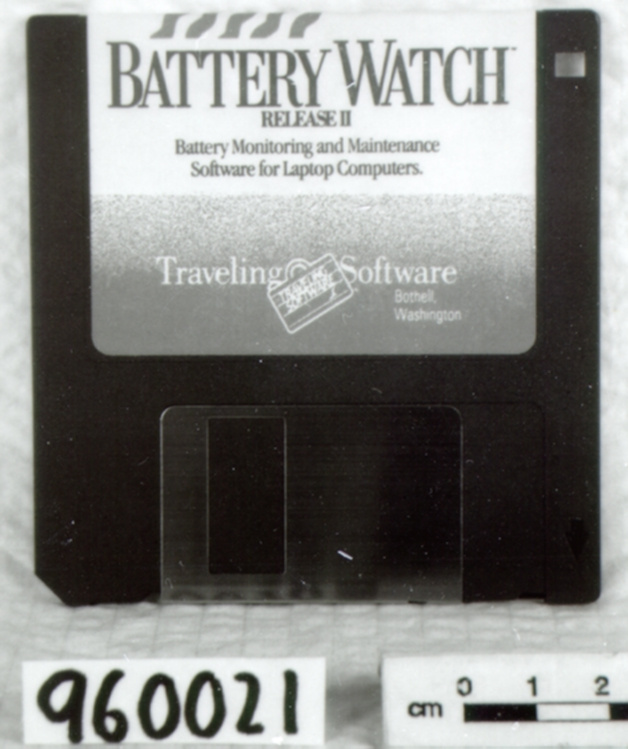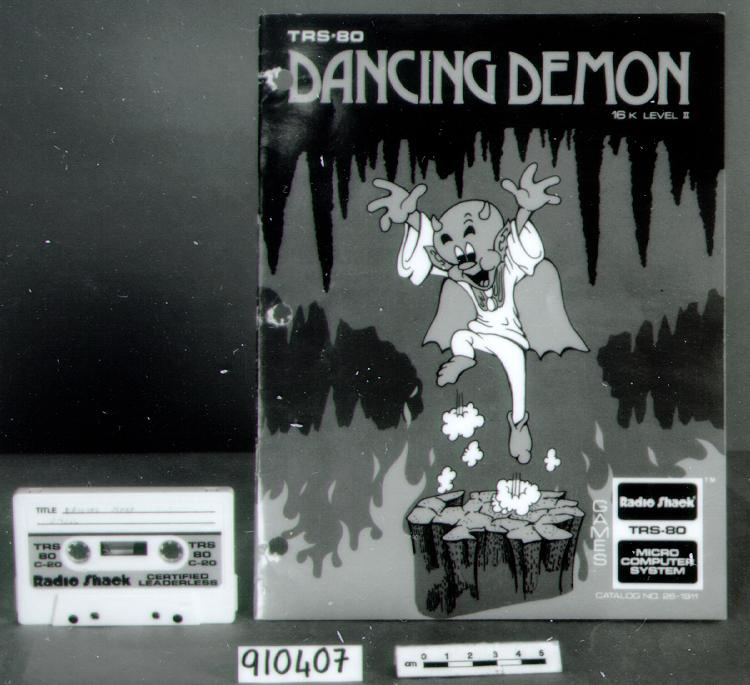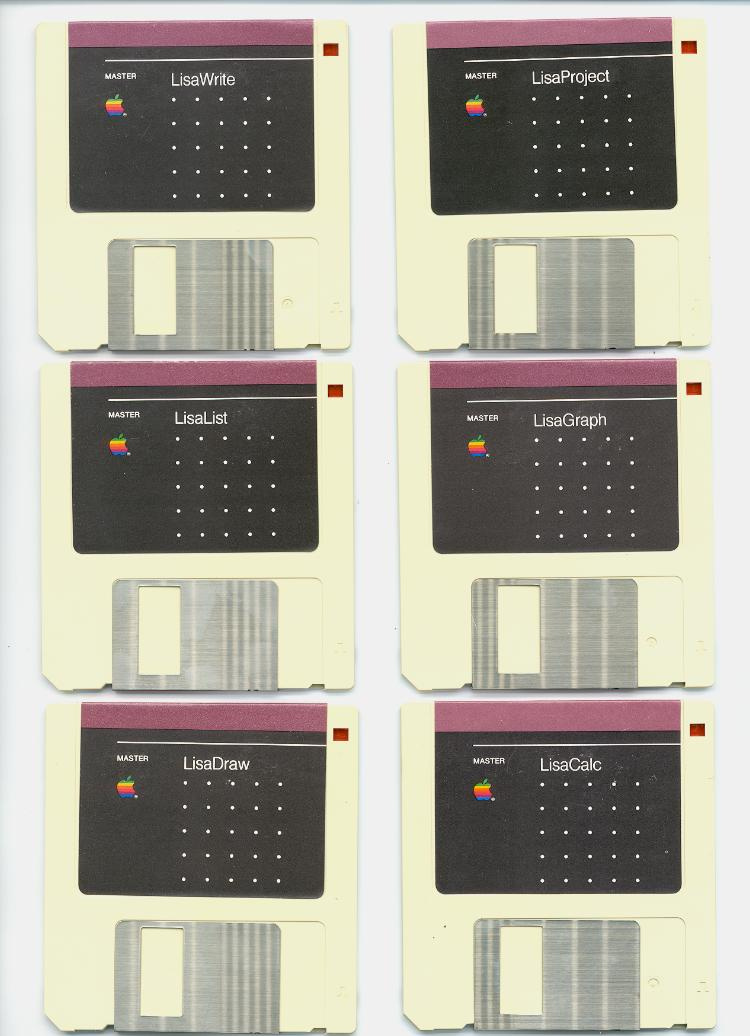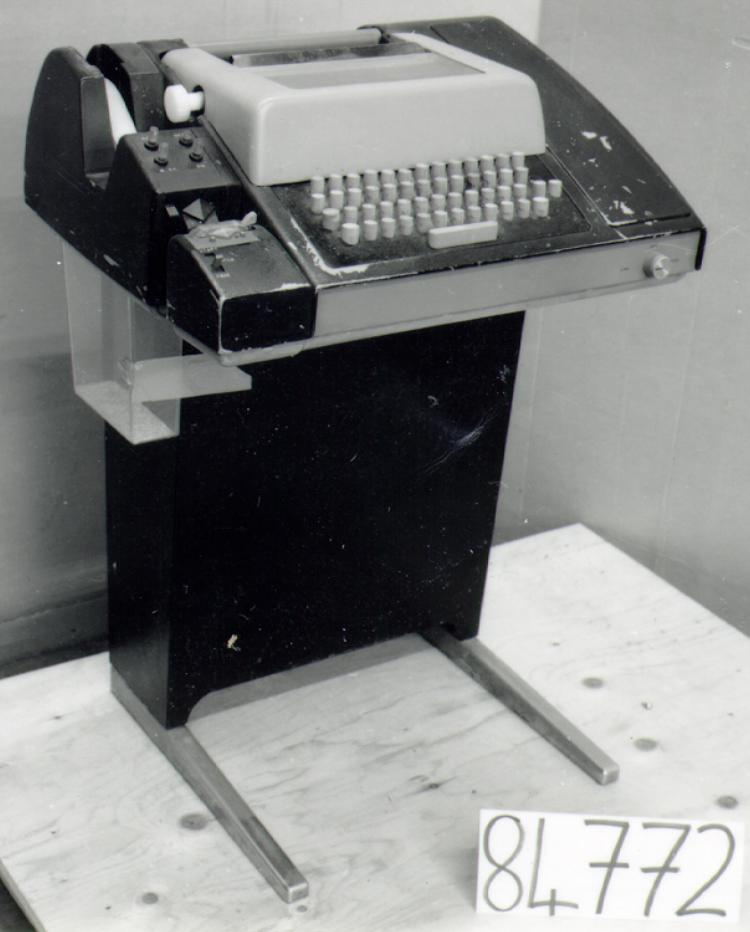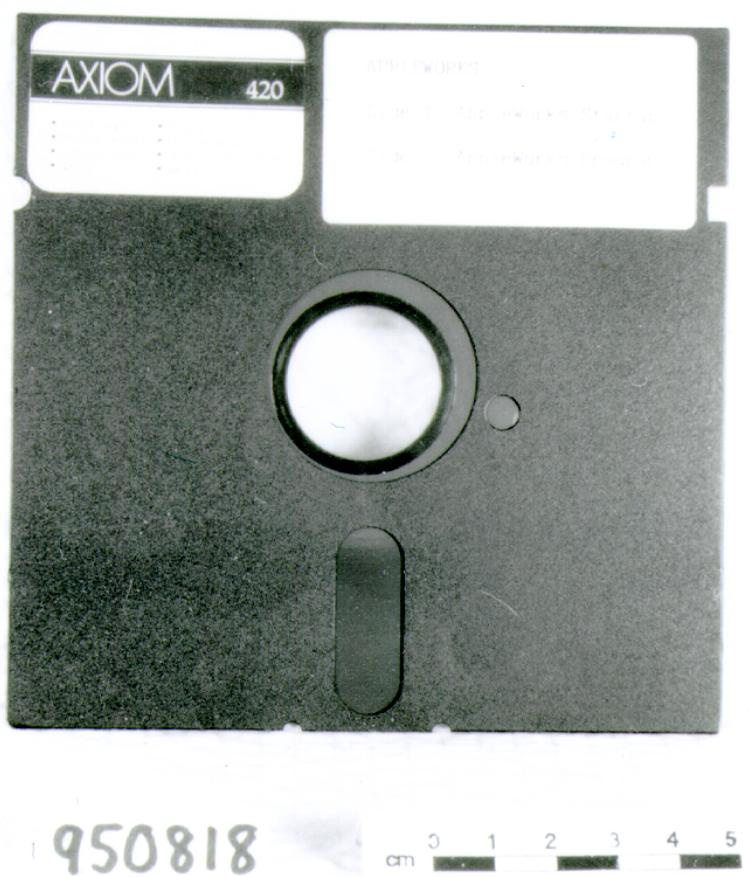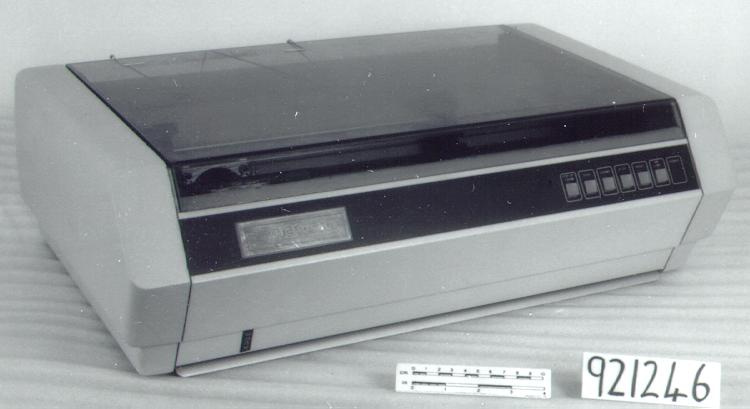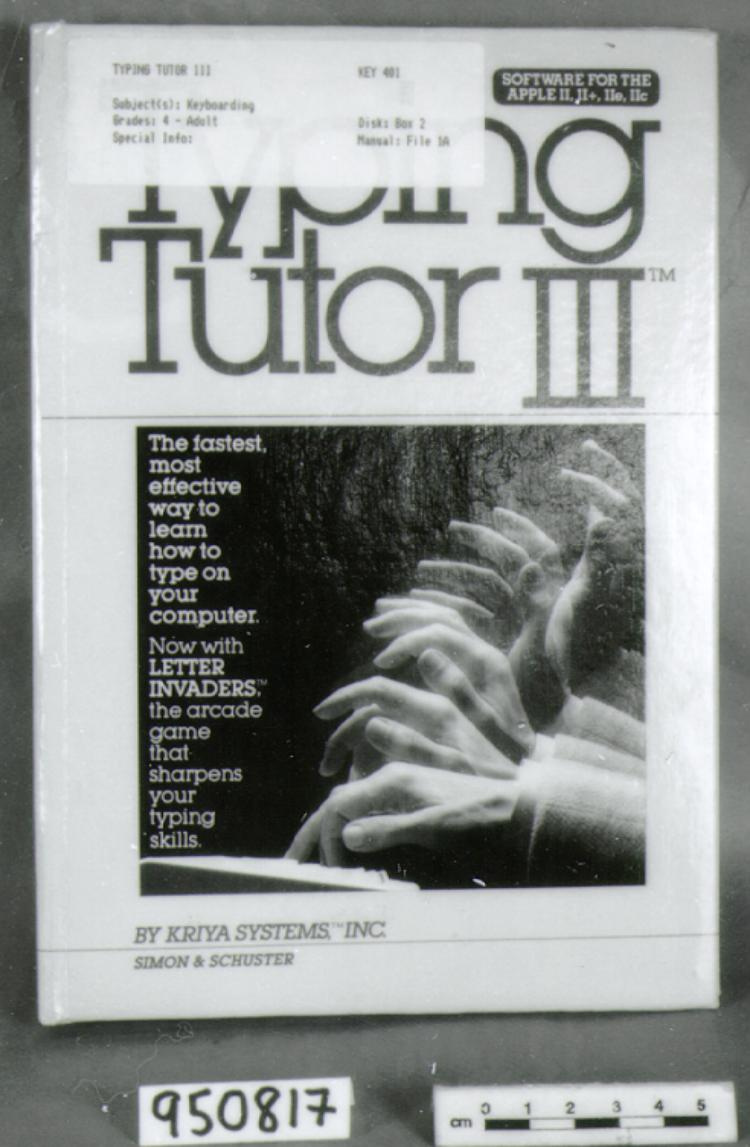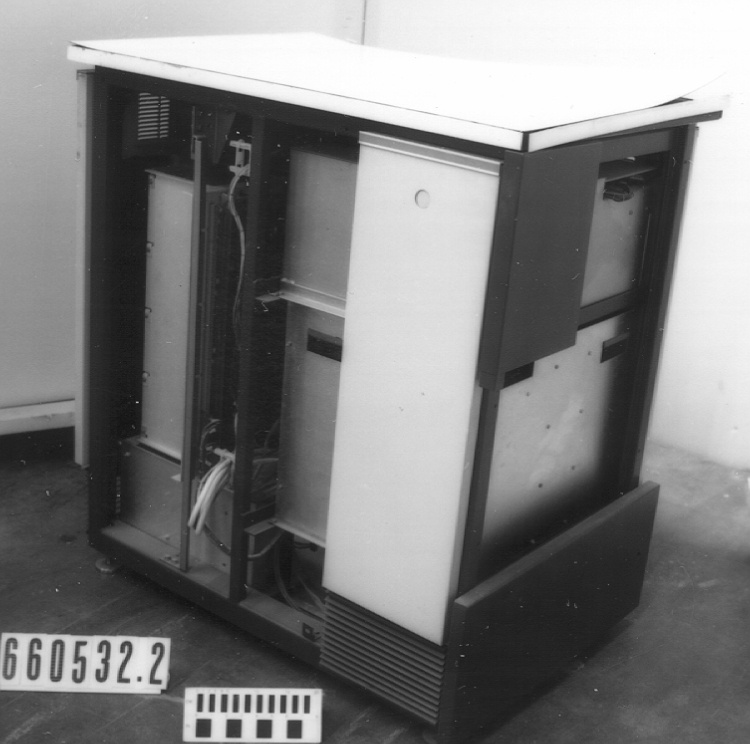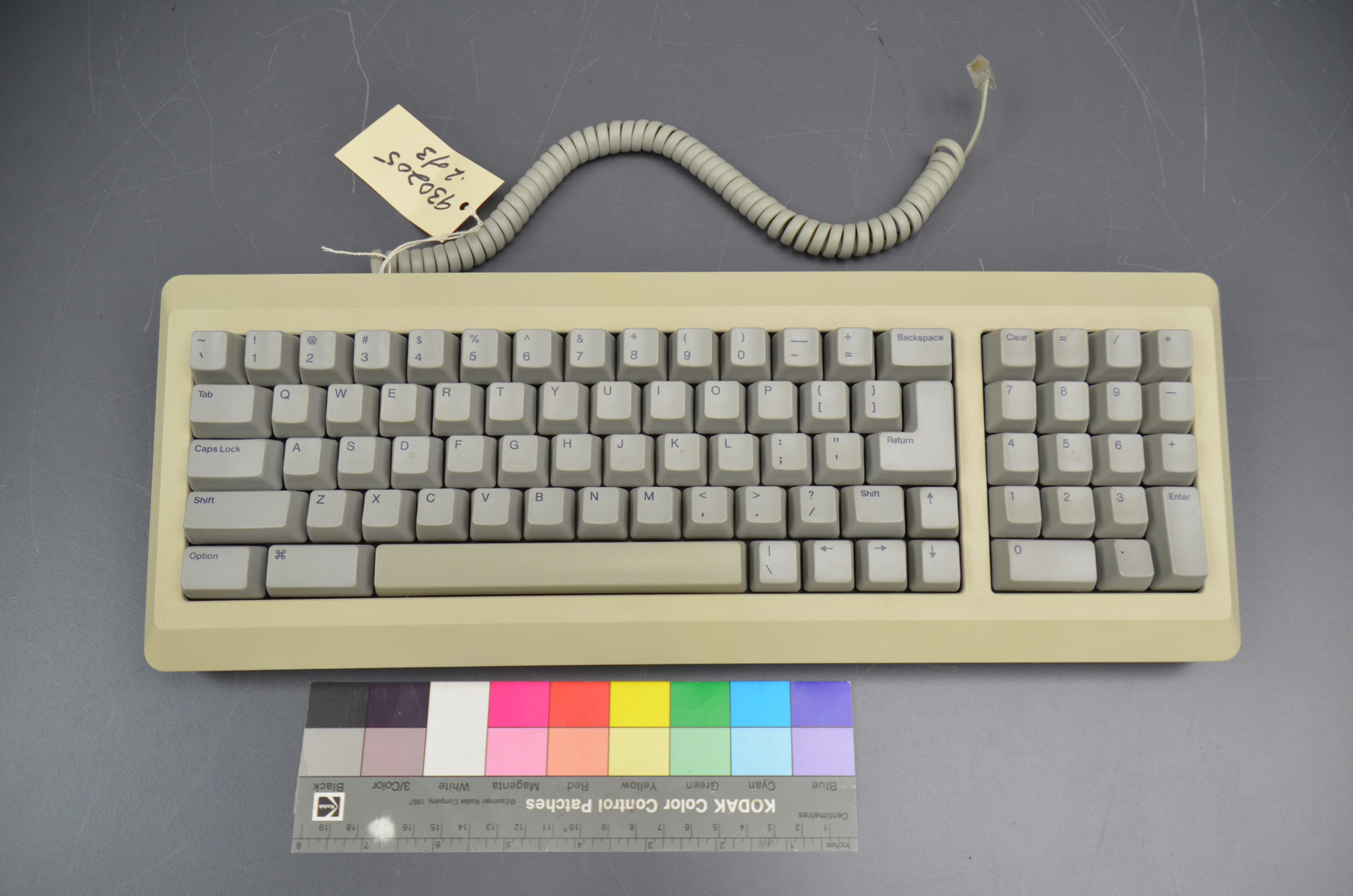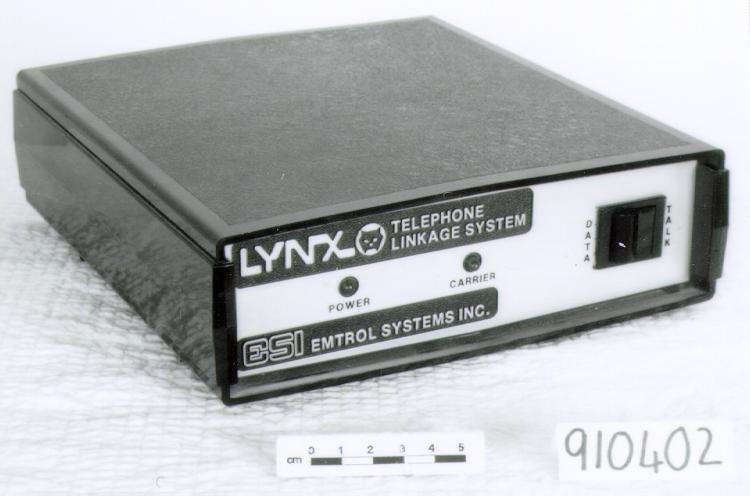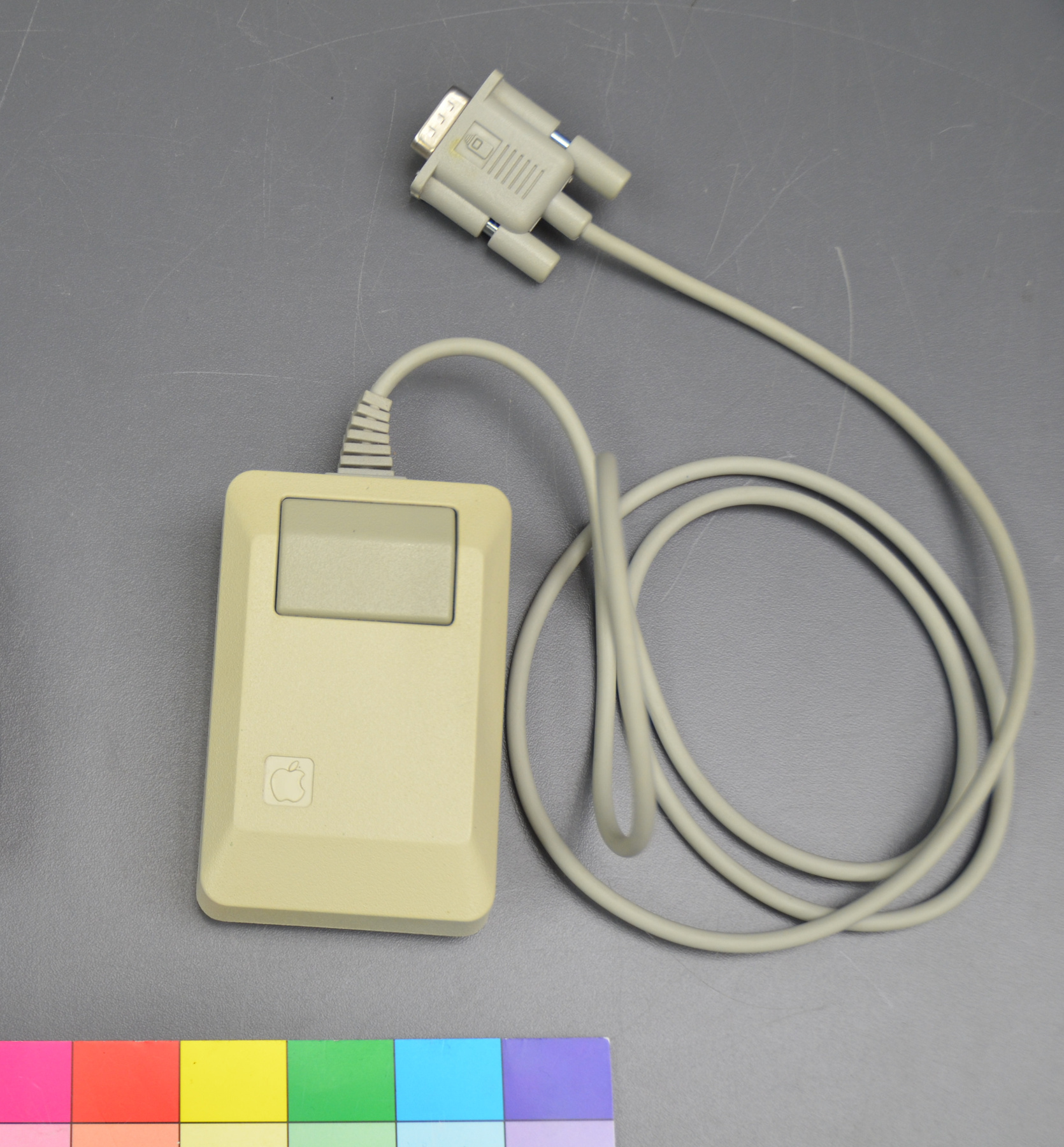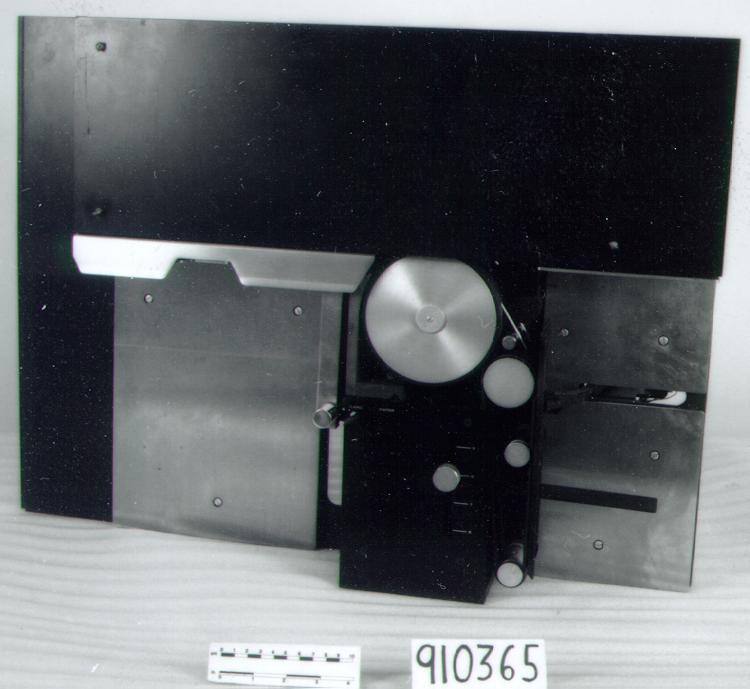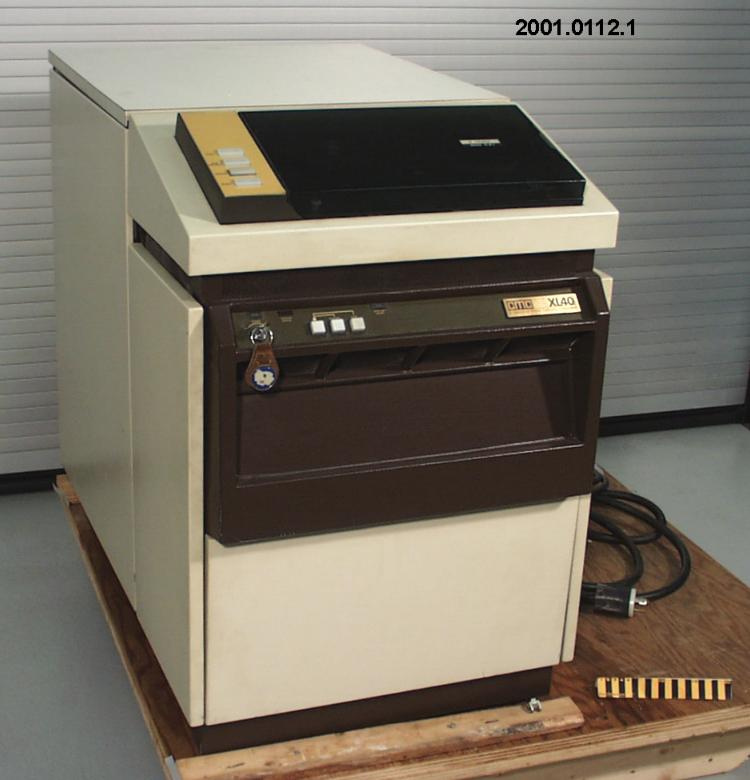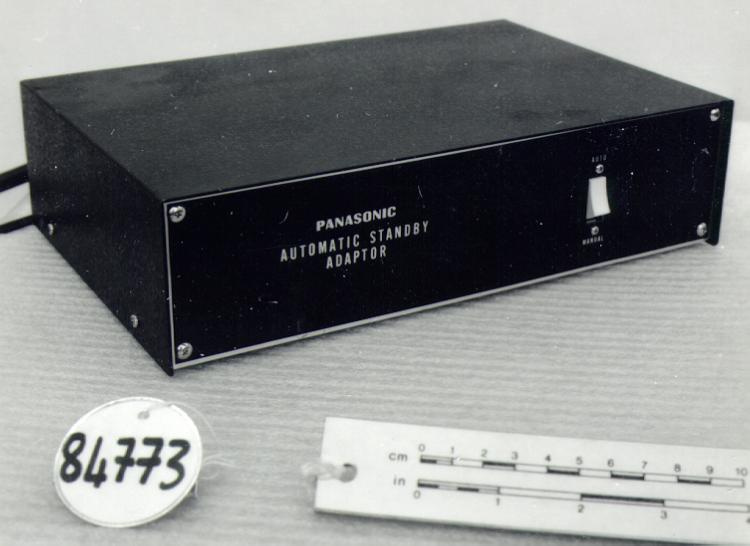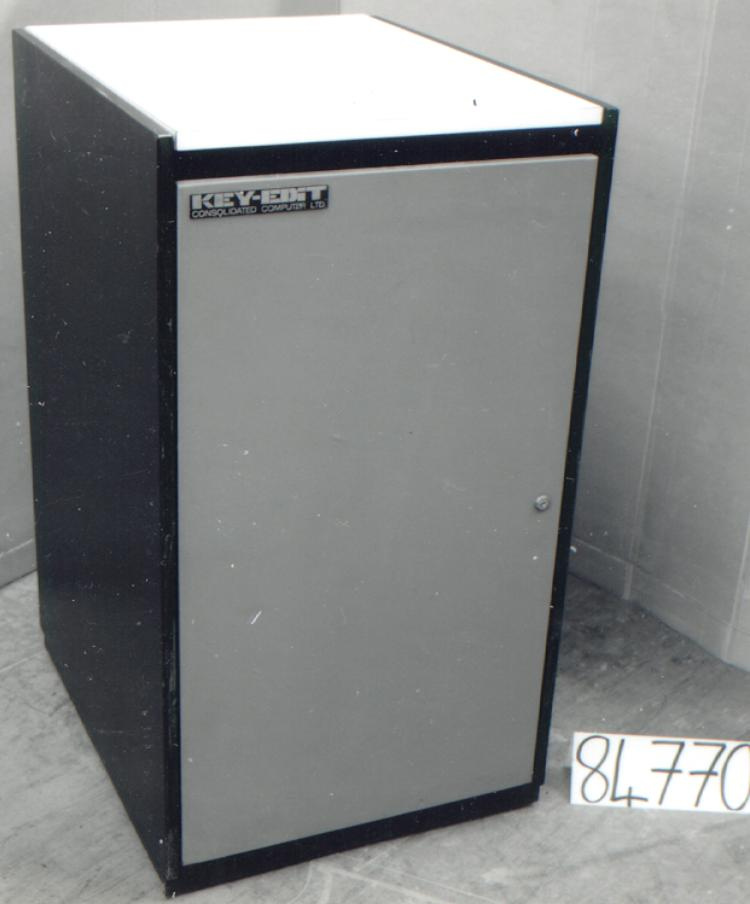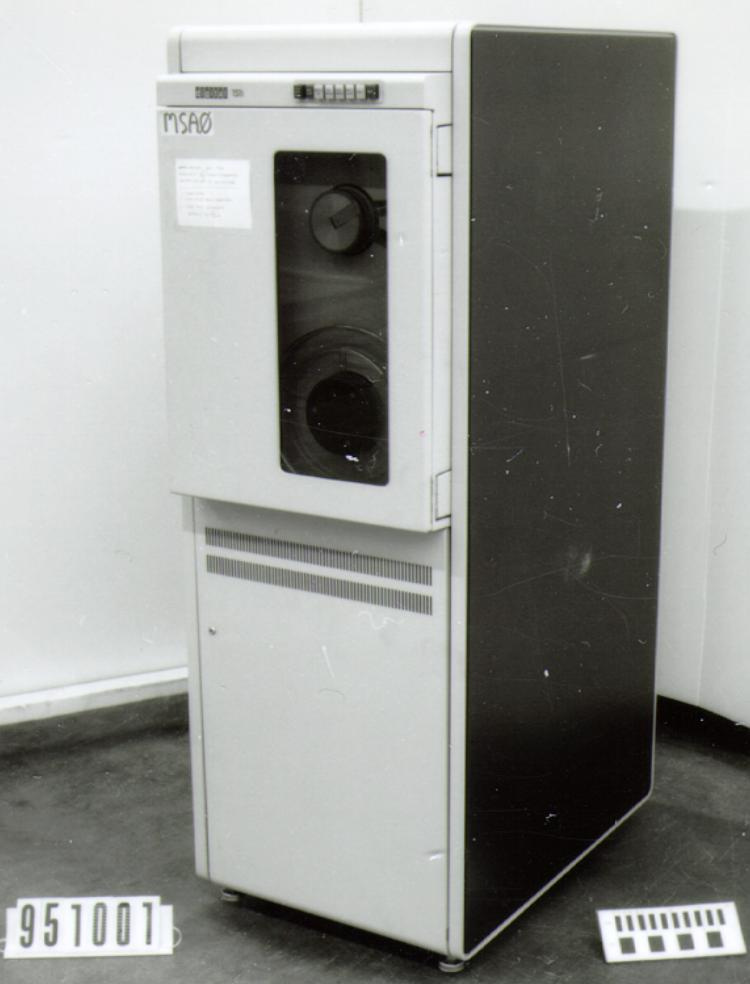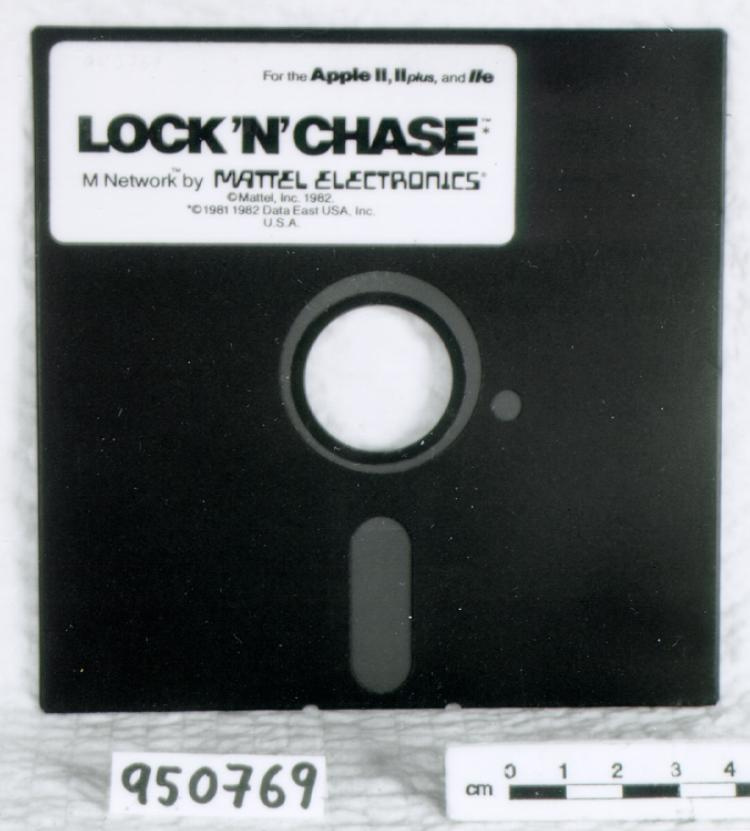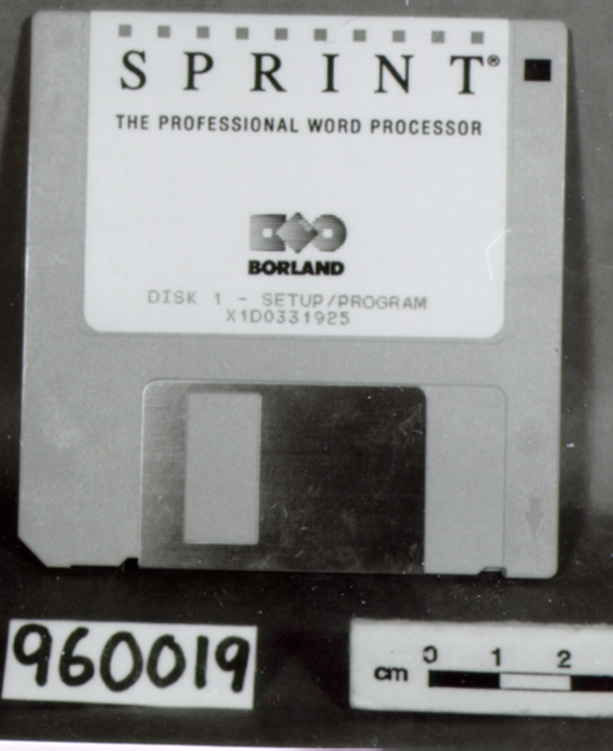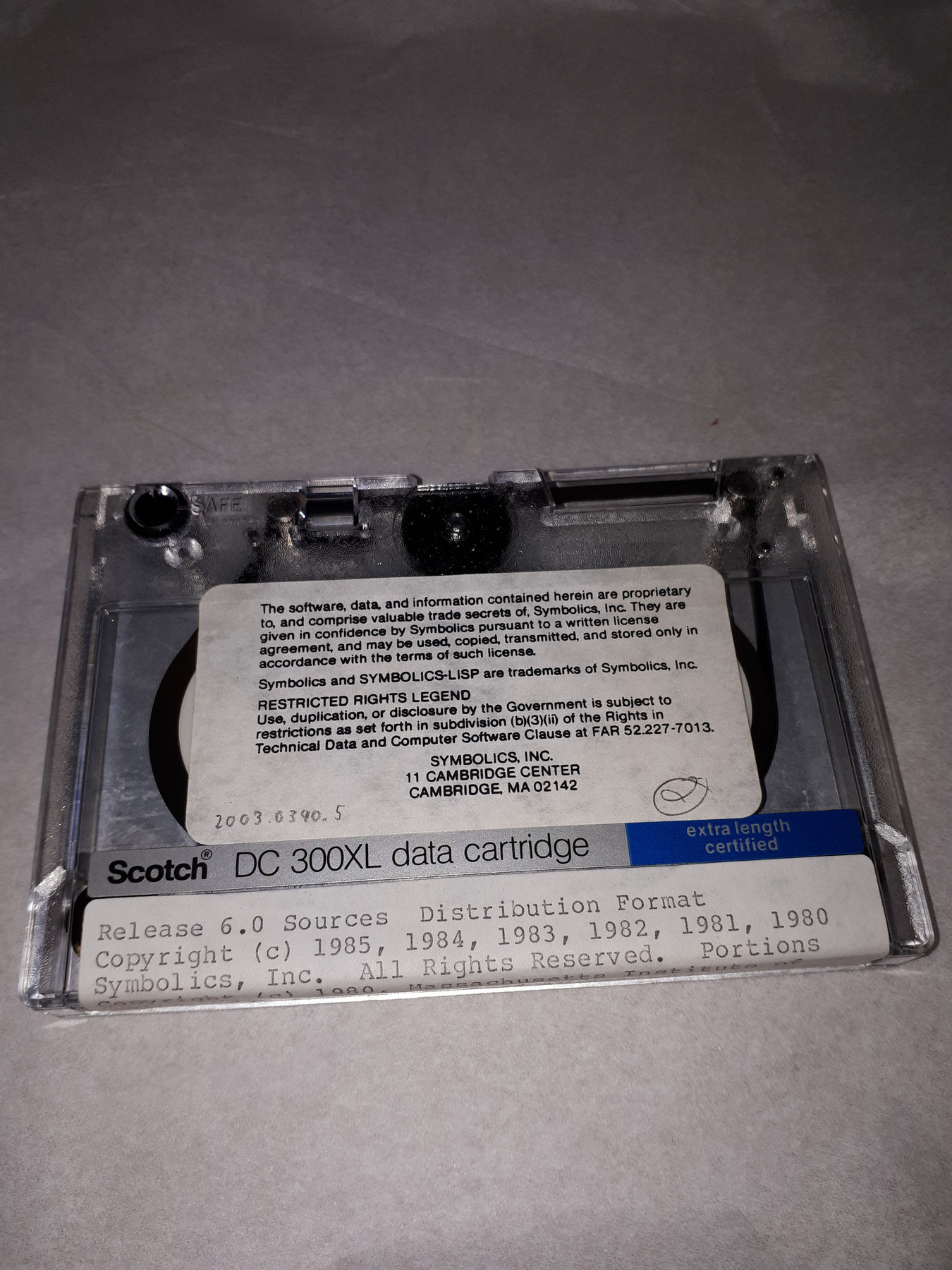Software
Use this image
Can I reuse this image without permission? Yes
Object images on the Ingenium Collection’s portal have the following Creative Commons license:
Copyright Ingenium / CC BY-NC-ND (Attribution-NonCommercial 4.0 International (CC BY-NC 4.0)
ATTRIBUTE THIS IMAGE
Ingenium,
2003.0390.005
Permalink:
Ingenium is releasing this image under the Creative Commons licensing framework, and encourages downloading and reuse for non-commercial purposes. Please acknowledge Ingenium and cite the artifact number.
DOWNLOAD IMAGEPURCHASE THIS IMAGE
This image is free for non-commercial use.
For commercial use, please consult our Reproduction Fees and contact us to purchase the image.
- OBJECT TYPE
- symbolic programming language/magnetic tape cartridge
- DATE
- 1985
- ARTIFACT NUMBER
- 2003.0390.005
- MANUFACTURER
- Symbolics Inc.
- MODEL
- Symbolics Lisp/6.0 Sources Distribution Format
- LOCATION
- United States of America
More Information
General Information
- Serial #
- N/A
- Part Number
- 5
- Total Parts
- 20
- AKA
- N/A
- Patents
- N/A
- General Description
- synthetic casing, reels, parts/ metal case backing and parts
Dimensions
Note: These reflect the general size for storage and are not necessarily representative of the object's true dimensions.
- Length
- 15.3 cm
- Width
- 10.1 cm
- Height
- N/A
- Thickness
- 1.7 cm
- Weight
- N/A
- Diameter
- N/A
- Volume
- N/A
Lexicon
- Group
- Computing Technology
- Category
- Digital peripheral devices
- Sub-Category
- N/A
Manufacturer
- AKA
- Symbolics
- Country
- United States of America
- State/Province
- Unknown
- City
- Unknown
Context
- Country
- Canada
- State/Province
- Ontario
- Period
- circa 1986 +
- Canada
-
Software for an American made computer of the mid 1980's used in Canada, presumably by the donor ORA Canada, information system consultants. - Function
-
A computer programme on magnetic tape, a version of Lisp, which is a symbol processing computer language based on the ideas of lambda-calculus, variable-length lists and trees as fundamental data types and the interpretation of code as data and vice-versa. - Technical
-
A version of the symbol processing software Lisp developed by Symbolics Inc. for use on its Lisp machines, such as the 3460 (2003.0389). Lisp machines were symbol processing computers designed to run the symbolic programming language Lisp as their main software language (the name Lisp derives from List Processing Language). Symbol (or symbolic) processing includes computation with symbols, relationships and graphical objects as well as numbers, characters and bits. Symbolic representations can more closely model a given problem as it exists in the real world. List processing represents ideas as lists of words and other symbols. In the Lisp language, data, programs and the language itself are all lists of symbols within parentheses. Each section of the program contains many pairs of list defining parentheses and parentheses can rest within parentheses, defining lists within lists. This structure makes it possible to write programs that can write or modify other programs in turn and also to write programs or subroutines that can refer to themselves by recursion. Many now commonplace technologies, such as effective garbage control, laser printing, windowing systems, computer mice, high-resolution bit-mapped graphics, computer graphic rendering, networking innovations and protocols such as CHAOSnet were commercially pioneered on Lisp machines (Refs.2, 3, 5). Symbolics Inc. was formed in 1980 to develop a line of symbol processing computer systems and related processes. In 1983 it introduced its second generation of computers, the 3600 series, a line of 36-bit single-user computers designed for high-productivity software development and for the execution of large symbolic programs. The operating system included a number of advanced dialects of Lisp and by 1984 was named Genera; this was the operating system used on the 3640 (Ref. 1, 2, 3). AI research and development waned in the late 1980's and early 1990's, reducing sales; that fact and other problems drove the company into bankruptcy (Ref. 3). From Folduc Online Dictionary of Computing: (Ref. 6): LISt Processing language (Or mythically "Lots of Irritating Superfluous Parentheses"). Artificial Intelligence's mother tongue, a symbolic, functional, recursive language based on the ideas of lambda-calculus, variable-length lists and trees as fundamental data types and the interpretation of code as data and vice-versa. Data objects in Lisp are lists and atoms. Lists may contain lists and atoms. Atoms are either numbers or symbols. Programs in Lisp are themselves lists of symbols which can be treated as data. Most implementations of Lisp allow functions with side-effects but there is a core of Lisp which is purely functional. The original version was LISP 1, invented by John McCarthy at MIT in the late 1950s. Lisp is actually older than any other high level language still in use except Fortran. Accordingly, it has undergone considerable change over the years. Modern variants are quite different in detail. The dominant HLL among hackers until the early 1980s, Lisp now shares the throne with C. Common Lisp is a dialect of Lisp defined by a consortium of companies brought together in 1981 by the Defence Advanced Research Projects Agency (DARPA). Companies included Symbolics, Lisp Machines, Inc., Digital Equipment Corporation, Bell Labs., Xerox, Hewlett-Packard, Lawrence Livermore Labs., Carnegie-Mellon University, Stanford University, Yale, MIT and USC Berkeley. Common Lisp is a large and complex language, fairly close to a superset of MacLisp. It features lexical binding, data structures using defstruct and setf, closures, multiple values, types using declare and a variety of numerical types. Function calls allow "&optional", keyword and "&rest" arguments. Generic sequence can either be a list or an array. It provides formatted printing using escape characters (Ref. 6). - Area Notes
-
Unknown
Details
- Markings
- typewritten label on tape reads 'Release 6.0 Sources Distribution Format/ Copyright © 1985, 1984, 1983, 1982, 1981, 1980/ Symbolics, Inc. All Rights Reserved. Portions/ Copyright © 1980, Massachusetts Institute of/ Technology. All rights reserved./ Release 6.0 Sources Distribution Format 4/11/85 TD 995277 symbolics inc'/ label on front of tape reads 'Scotch ® DC300XL data cartridge/ extra length certified'/ label on back of tape reads 'The software, data, and information/ contained herein are proprietary to, and comprise valuable/ trade secrets of, Symbolics, Inc. They are given in confidence by/ Symbolics pursuant to a written license agreement, and may be used, copied, transmitted and stored only in accordance with the terms of such license./ Symbolics and Symbolics LISP are trademarks of Symbolics, Inc./ RESTRICTED RIGHTS LEGEND/ Use, duplication, or disclosure by the Government is subject to/ restrictions as set forth in subdivision (b)(3)(ii) of the Rights/ in Technical Data and Computer Software Clause of FAR 52.227-7013./ SYMBOLICS, INC. 11 CAMBRIDGE CENTER CAMBRIDGE, MA 012142'
- Missing
- complete
- Finish
- colourless transparent casing with metallic back/ metallic parts/ black tape on white reels
- Decoration
- N/A
CITE THIS OBJECT
If you choose to share our information about this collection object, please cite:
Symbolics Inc., Software, 1985, Artifact no. 2003.0390, Ingenium – Canada’s Museums of Science and Innovation, http://collections.ingeniumcanada.org/en/item/2003.0390.005/
FEEDBACK
Submit a question or comment about this artifact.
More Like This
